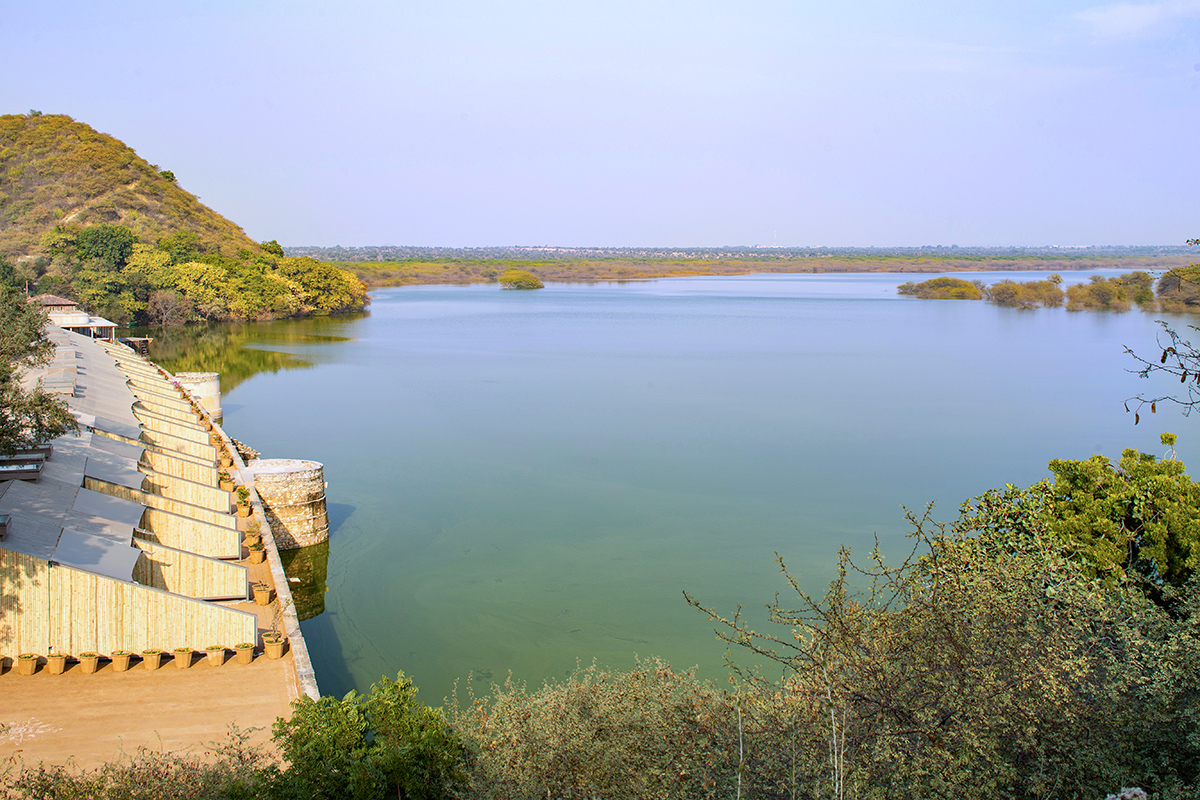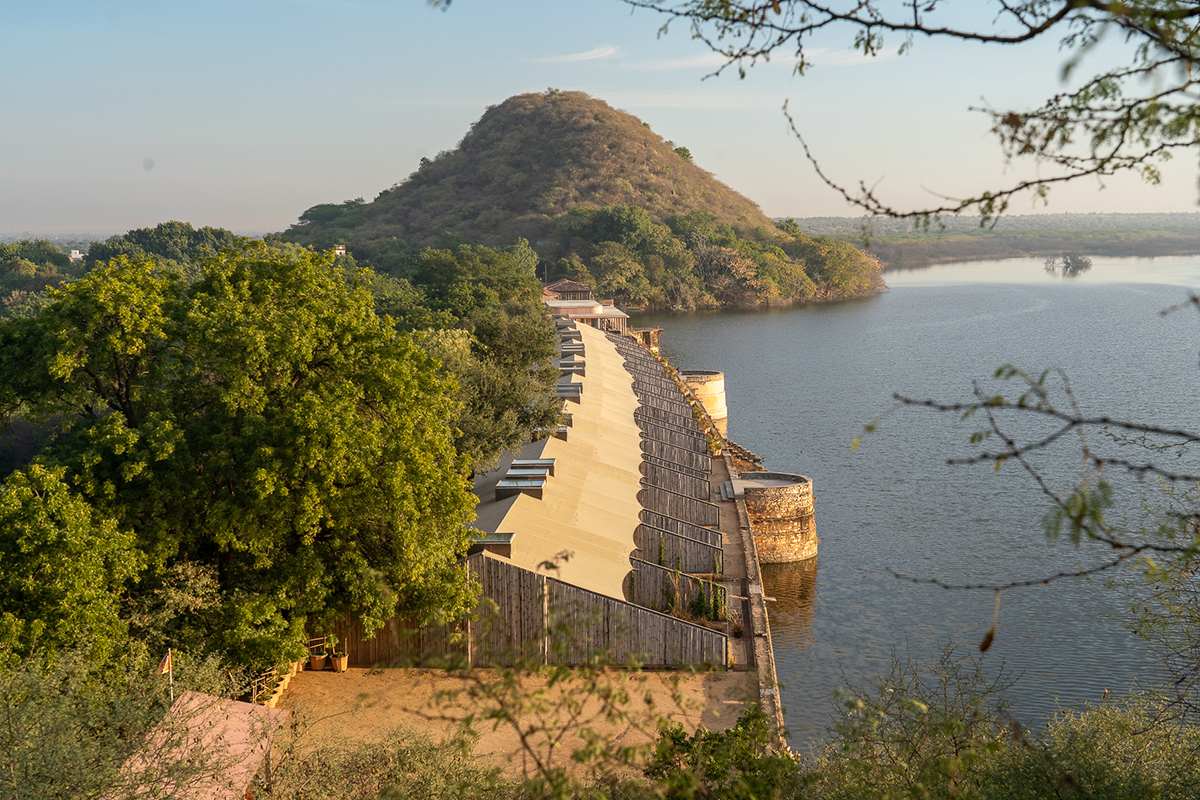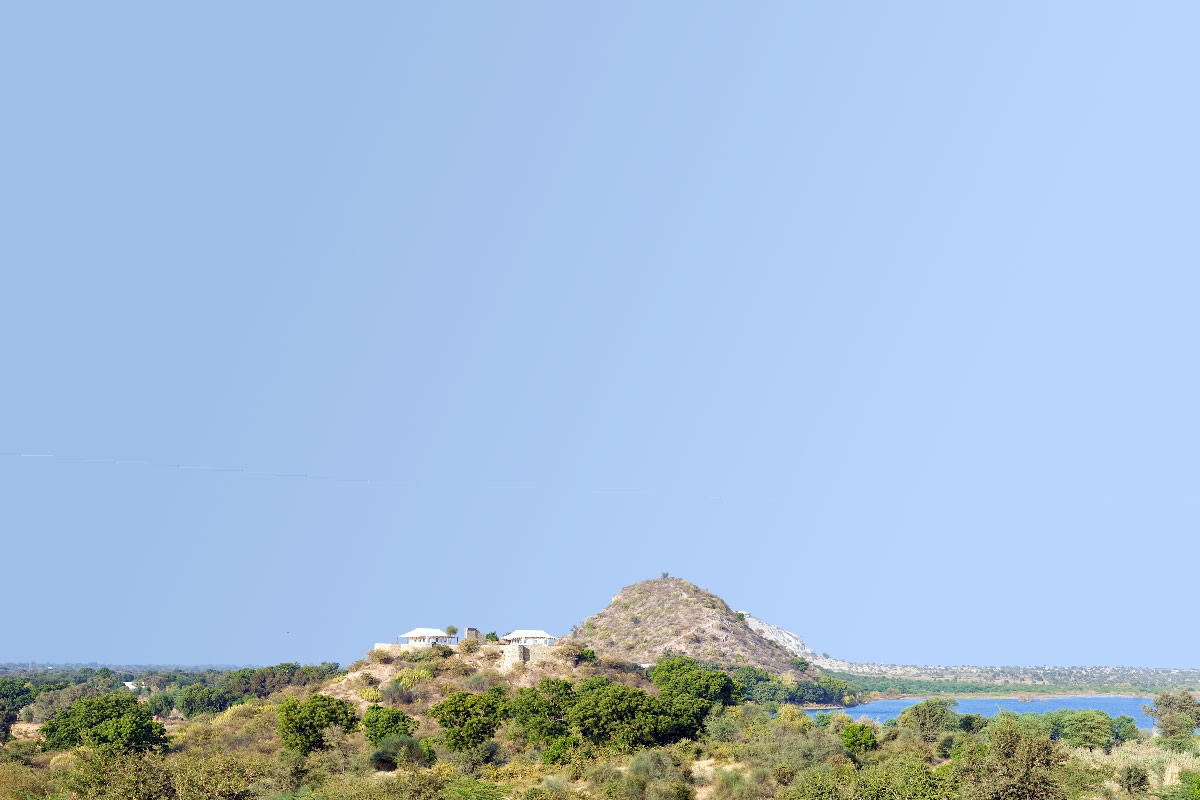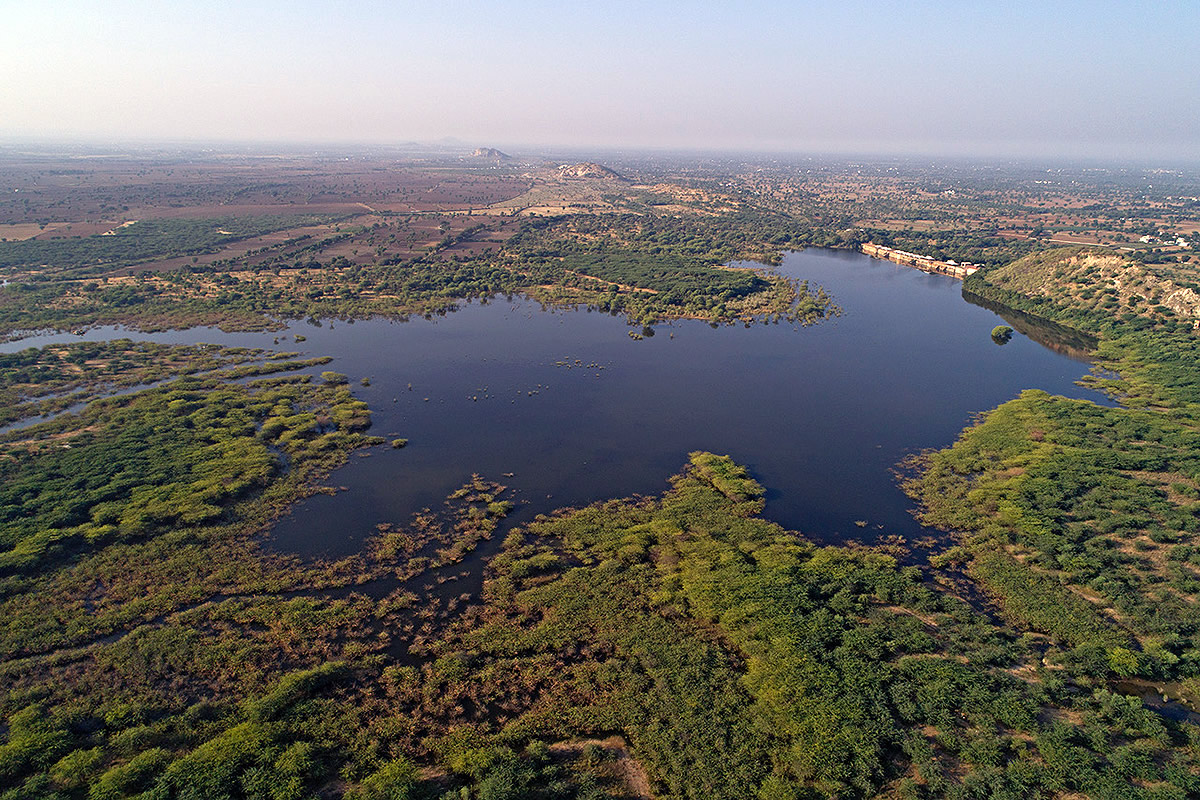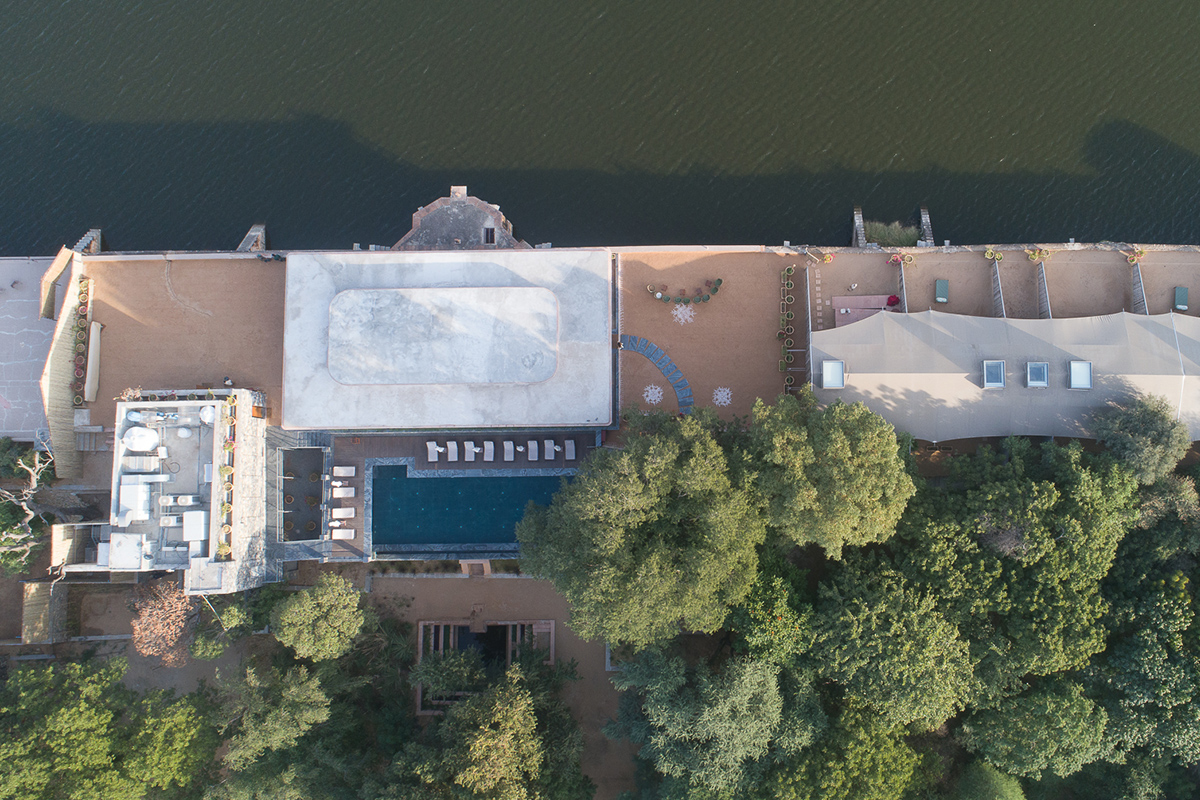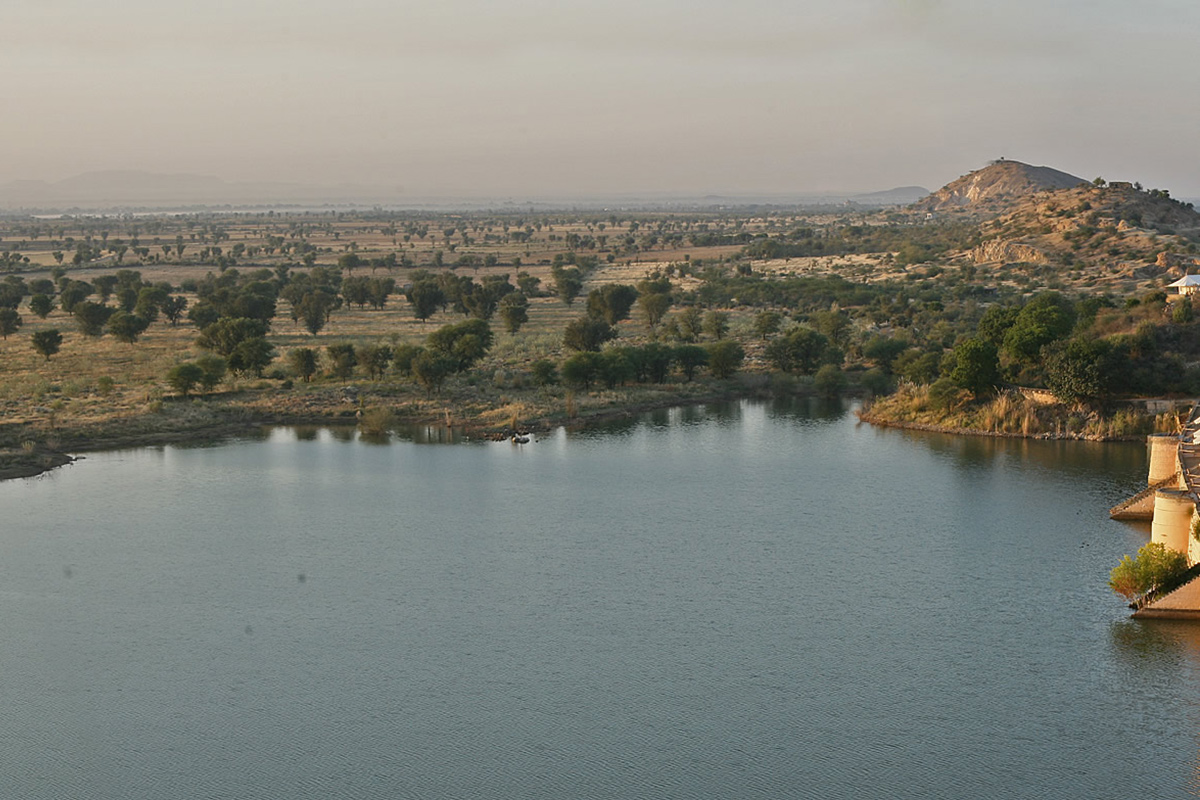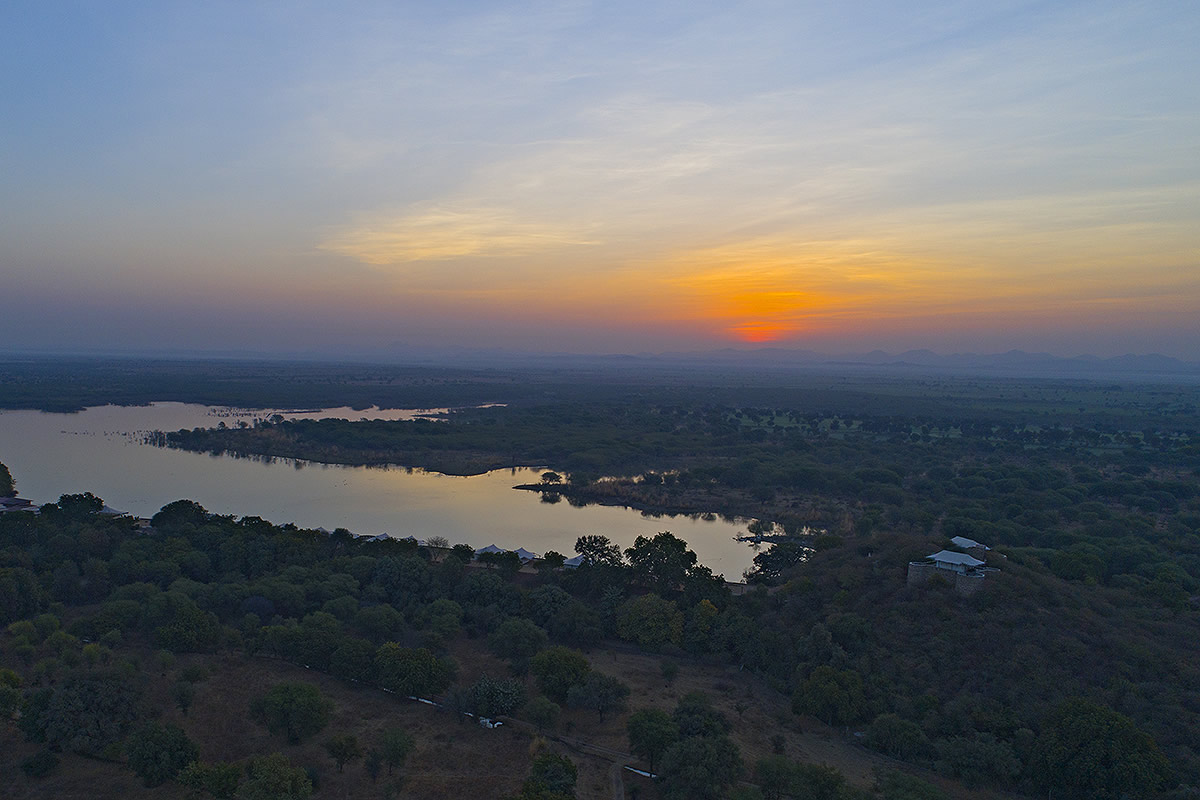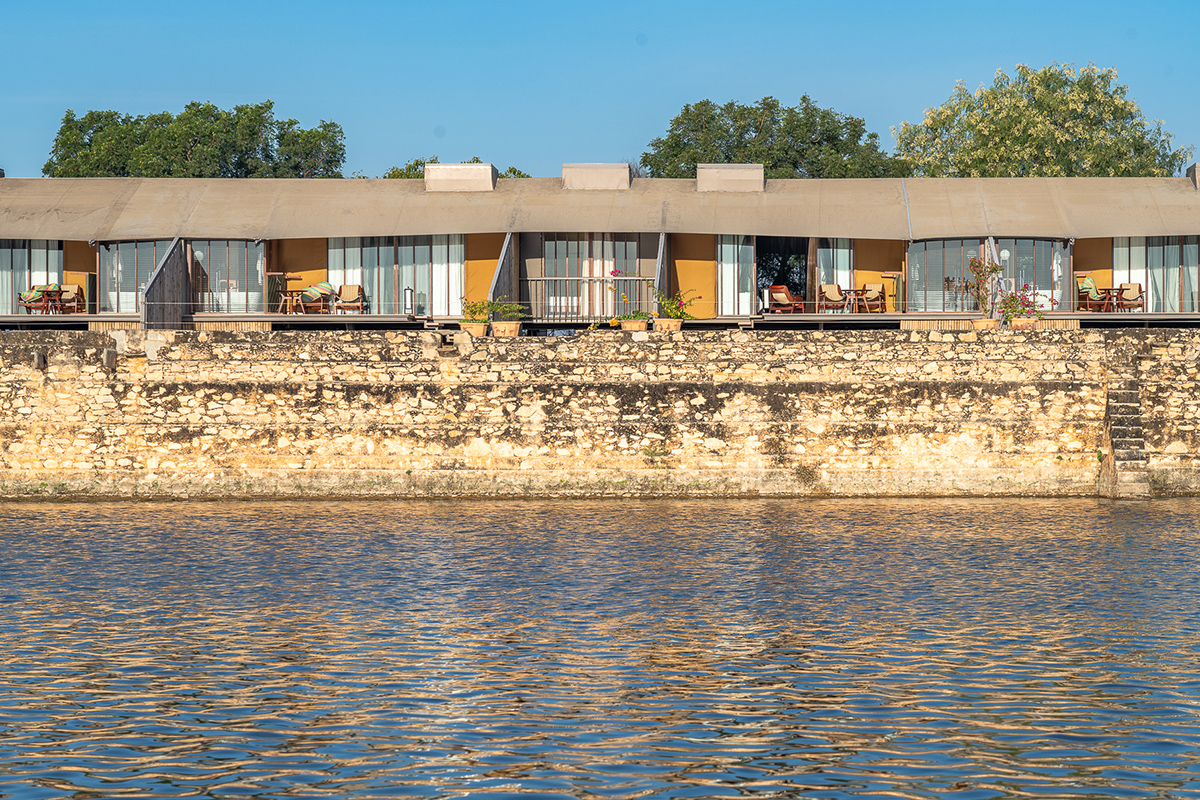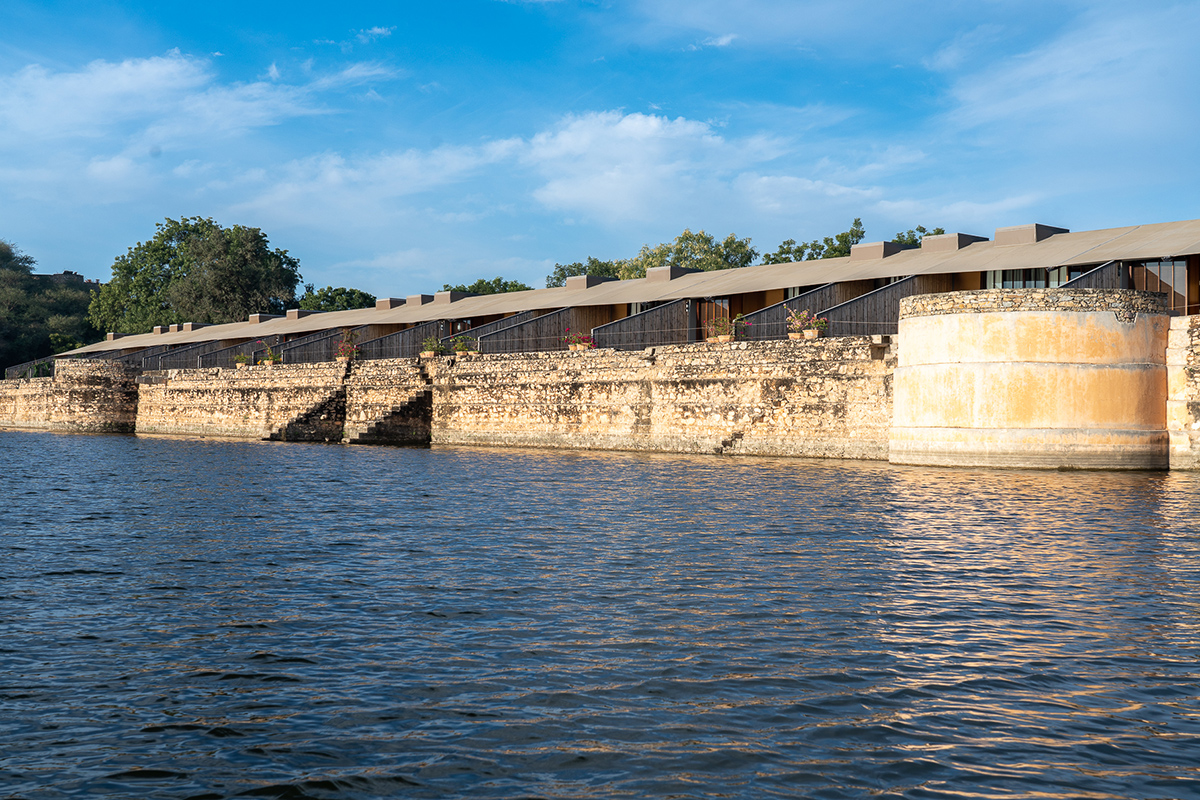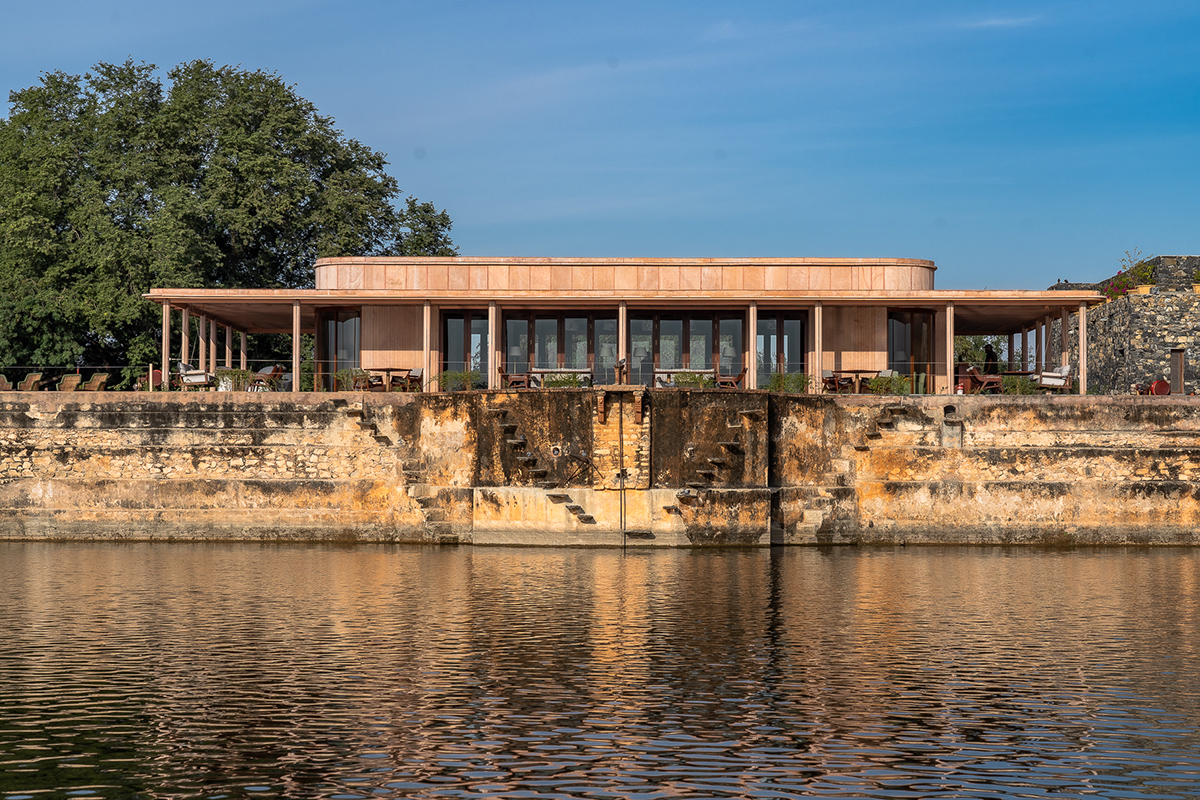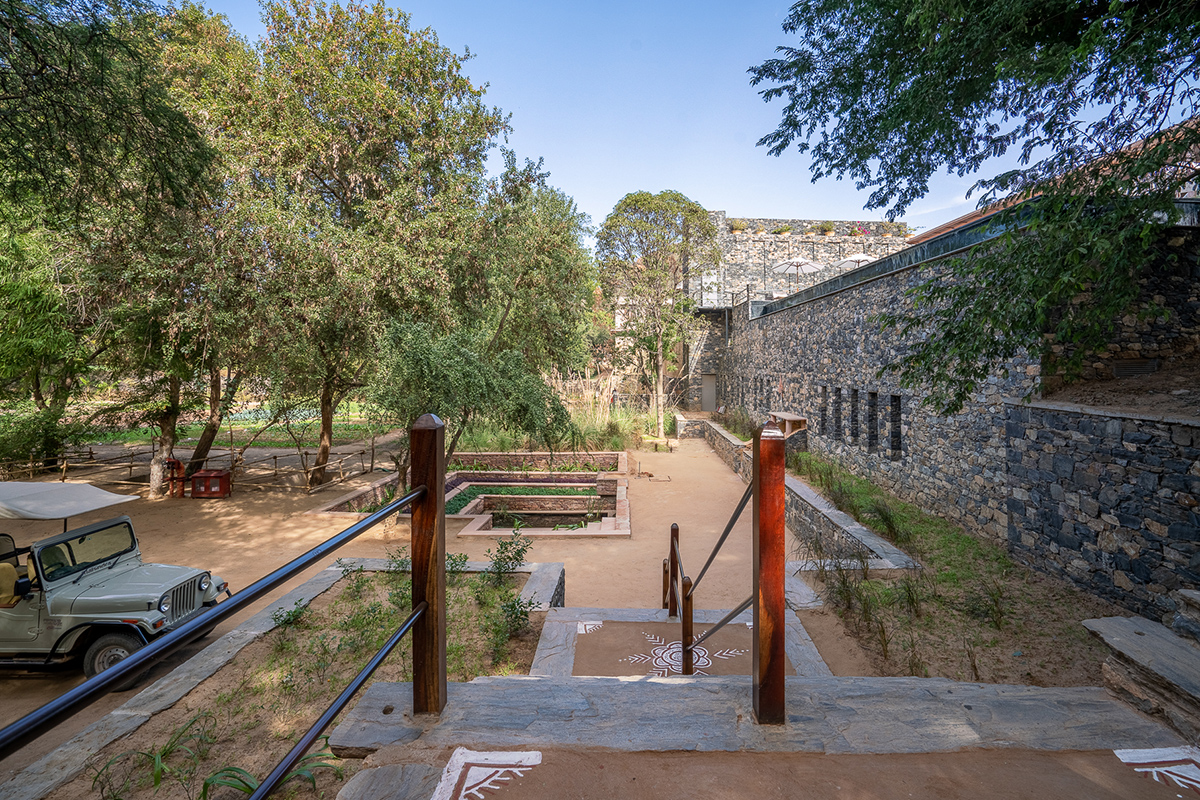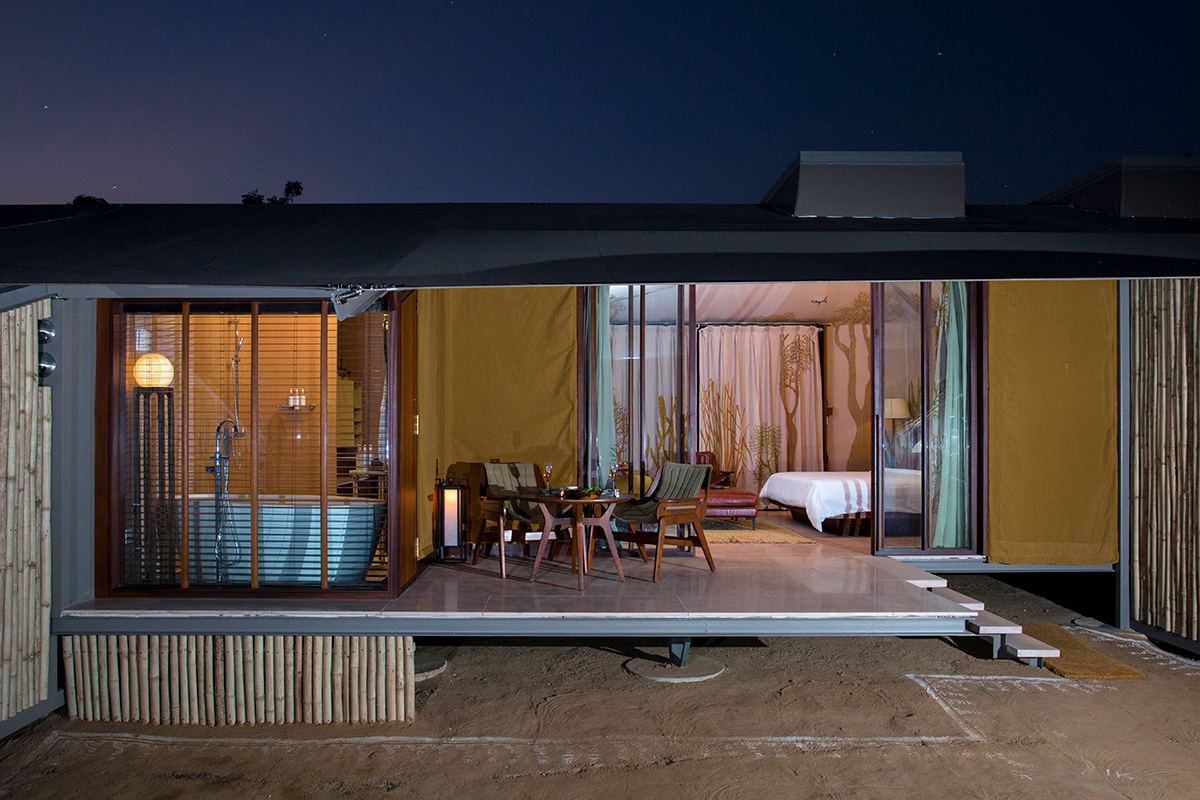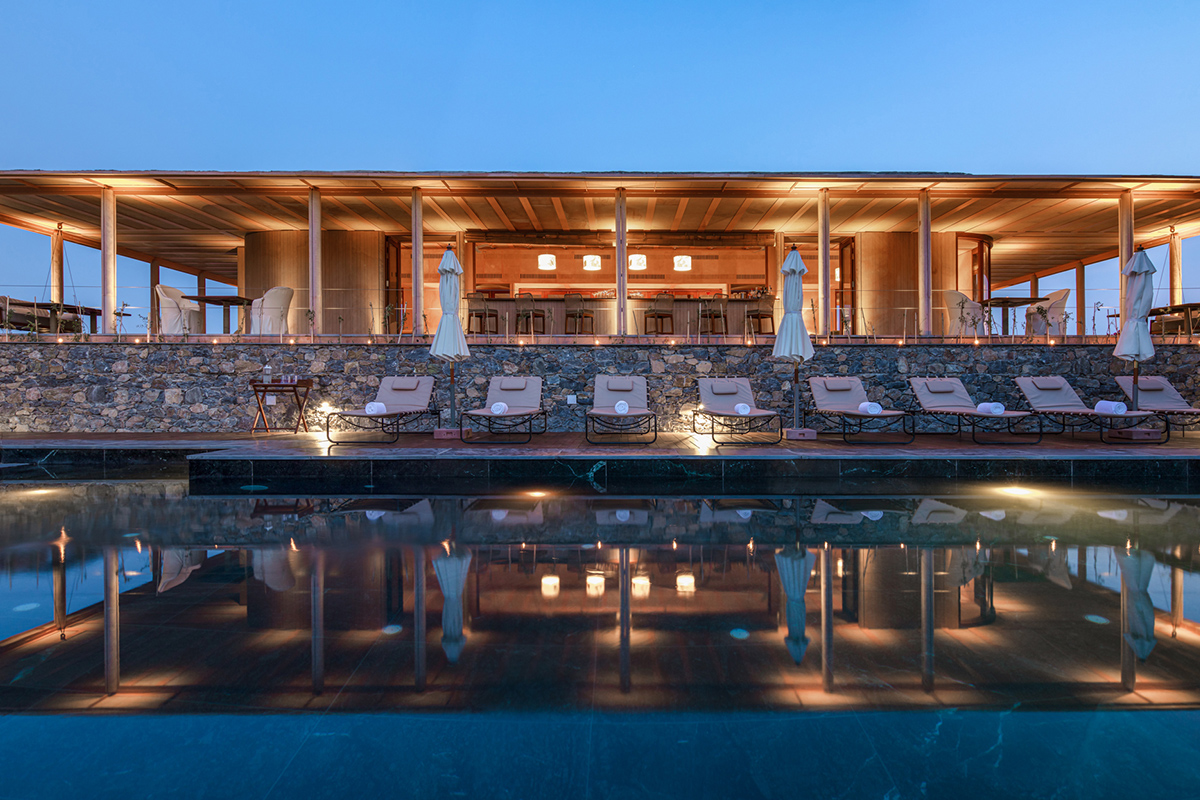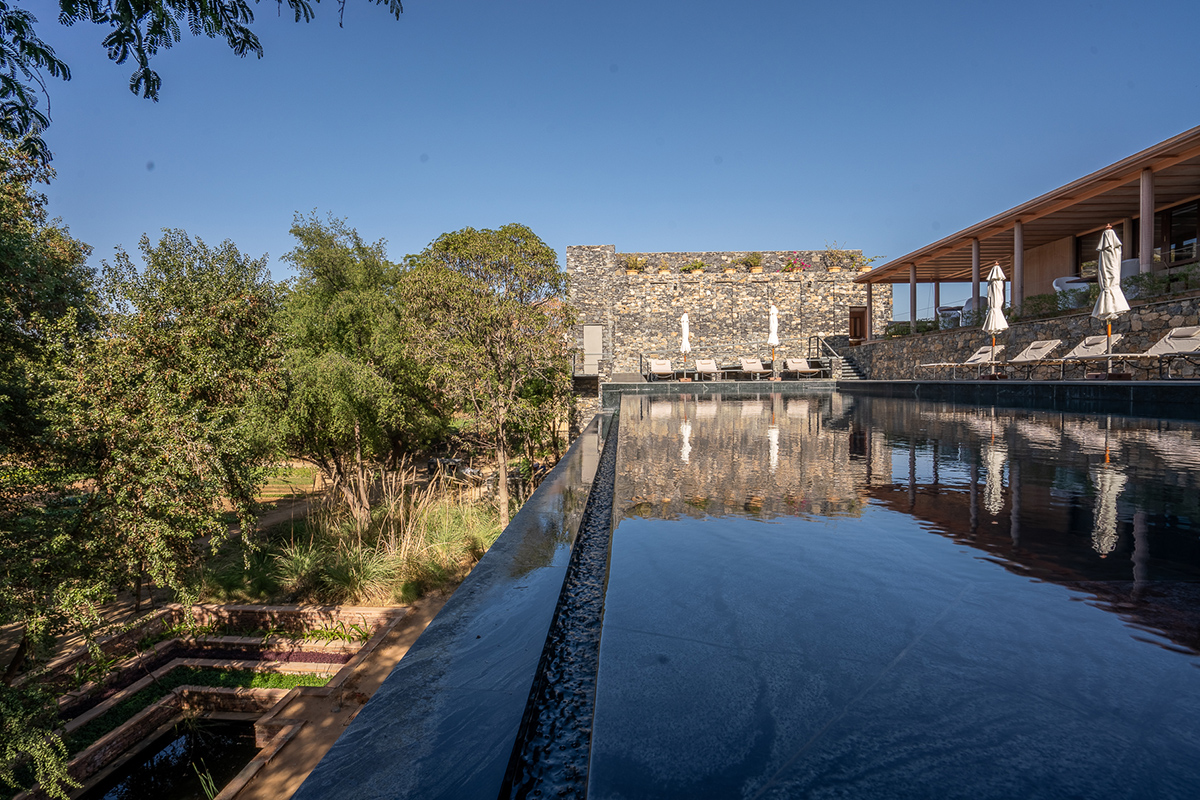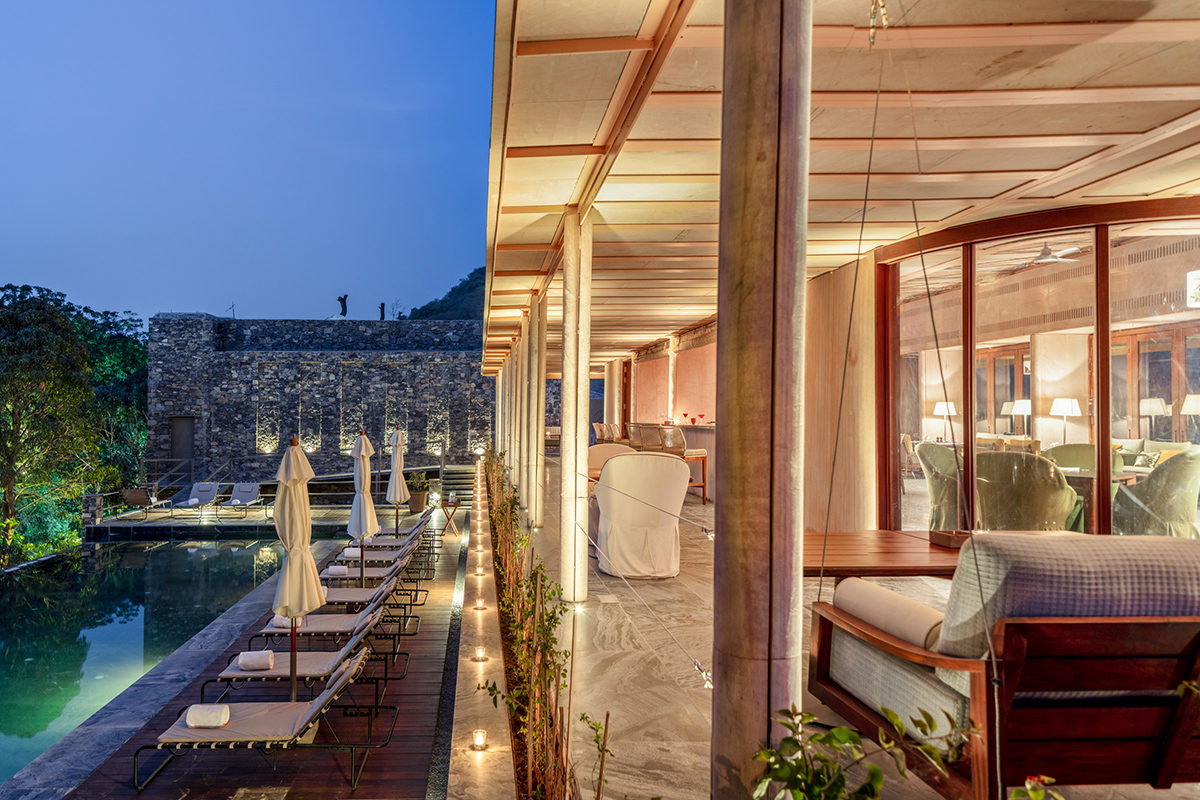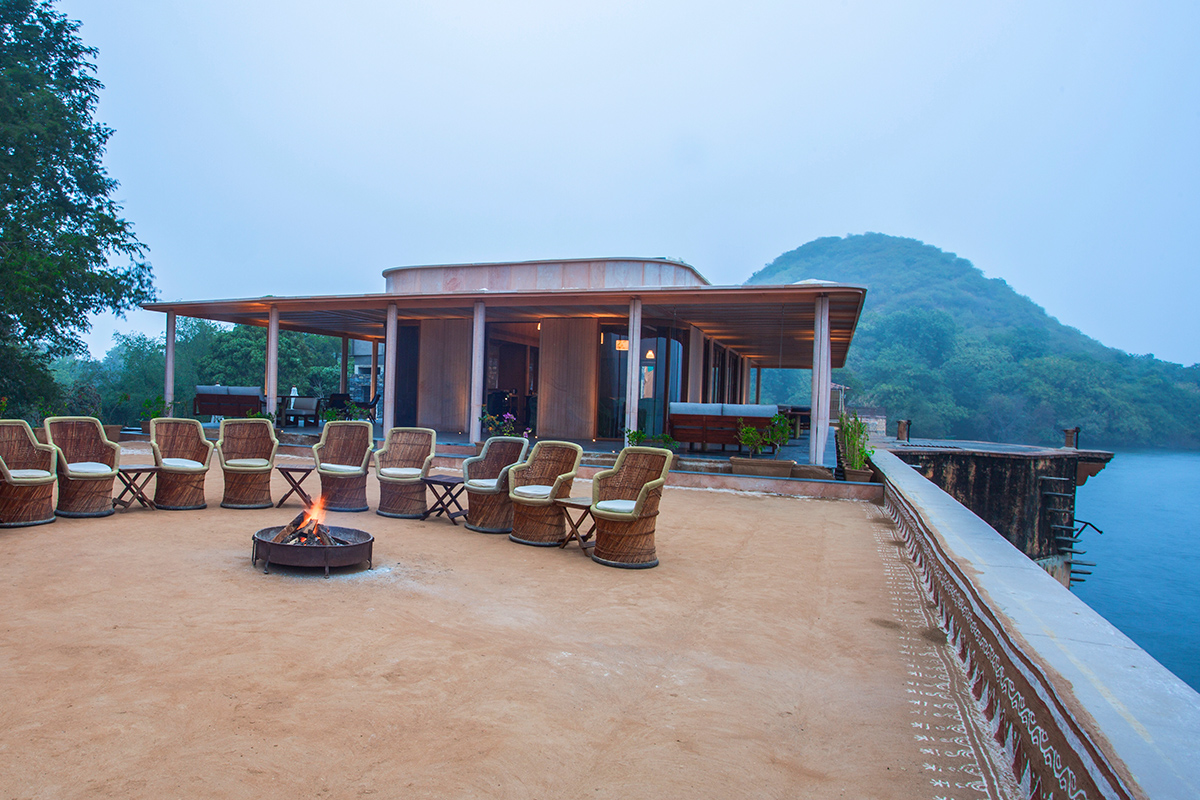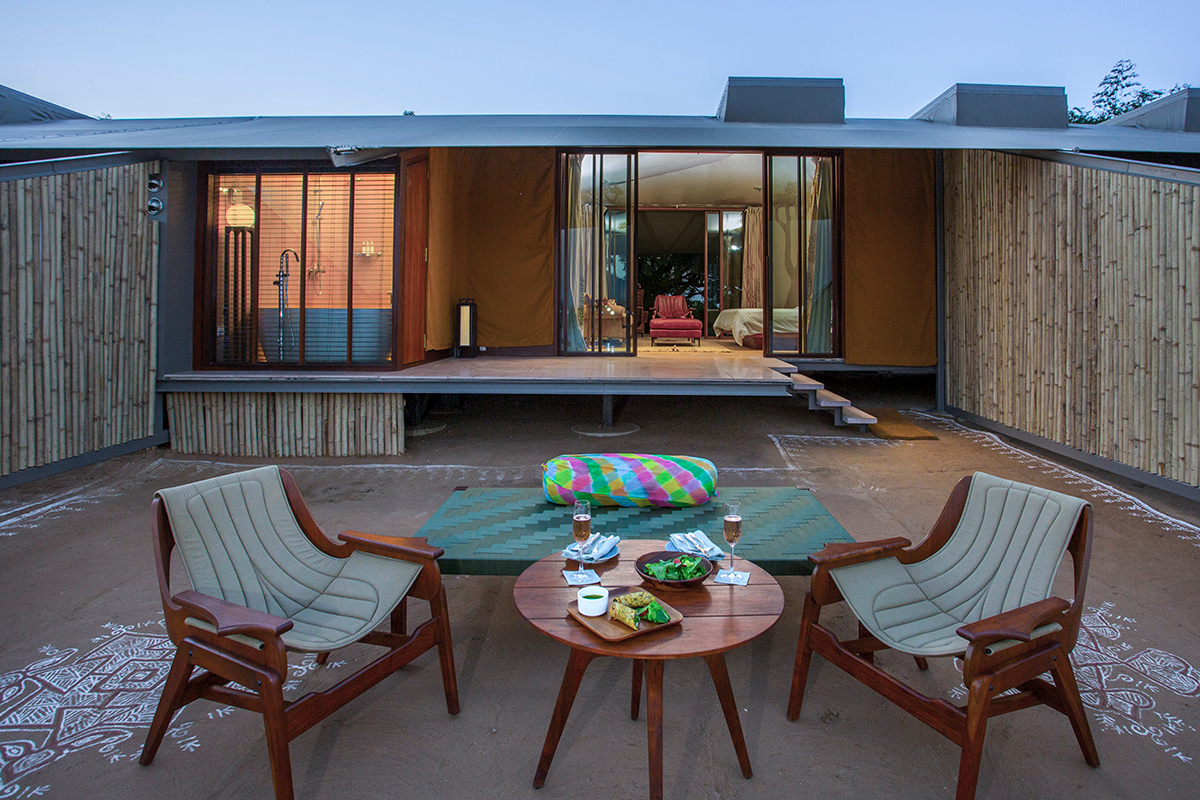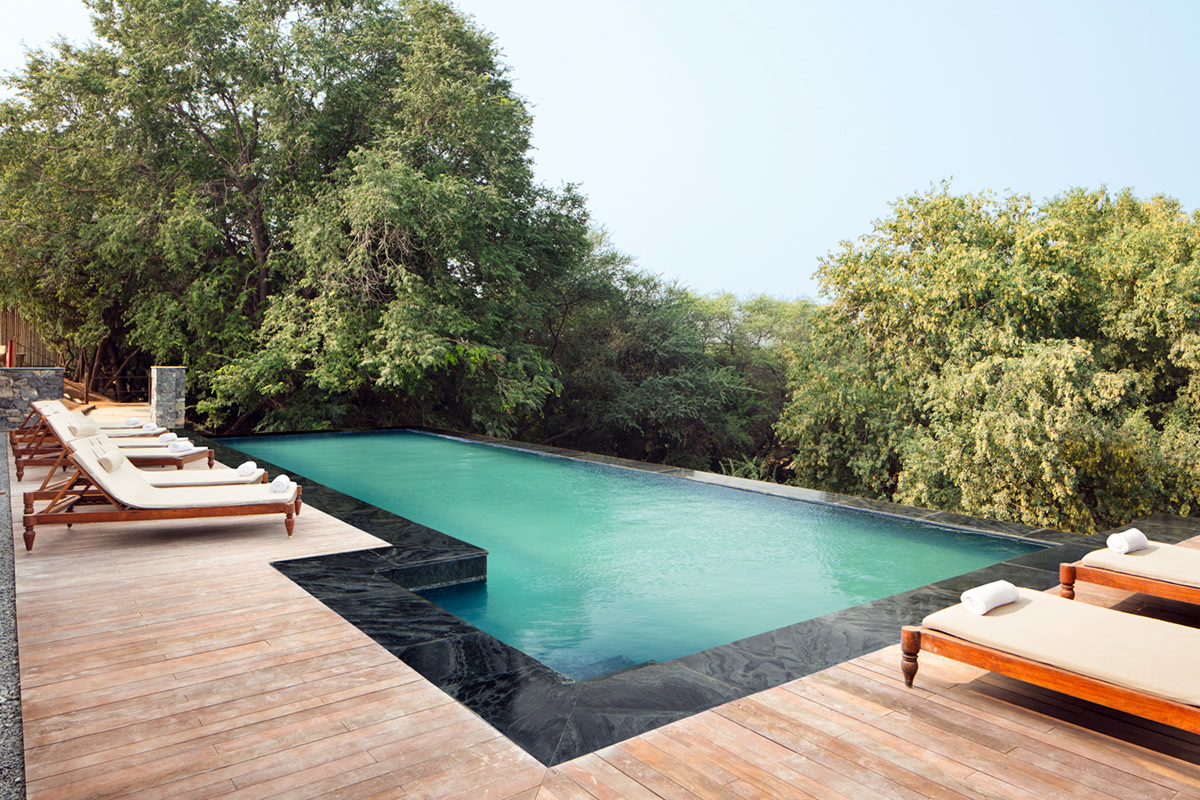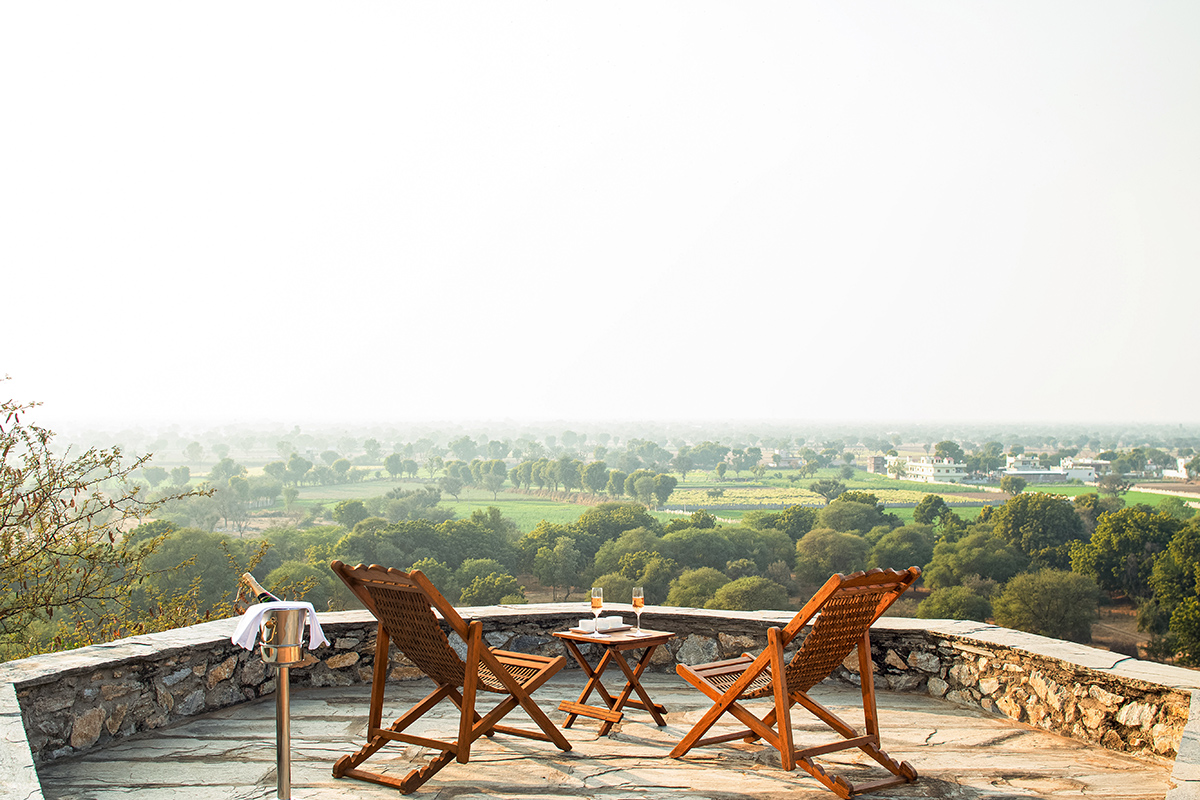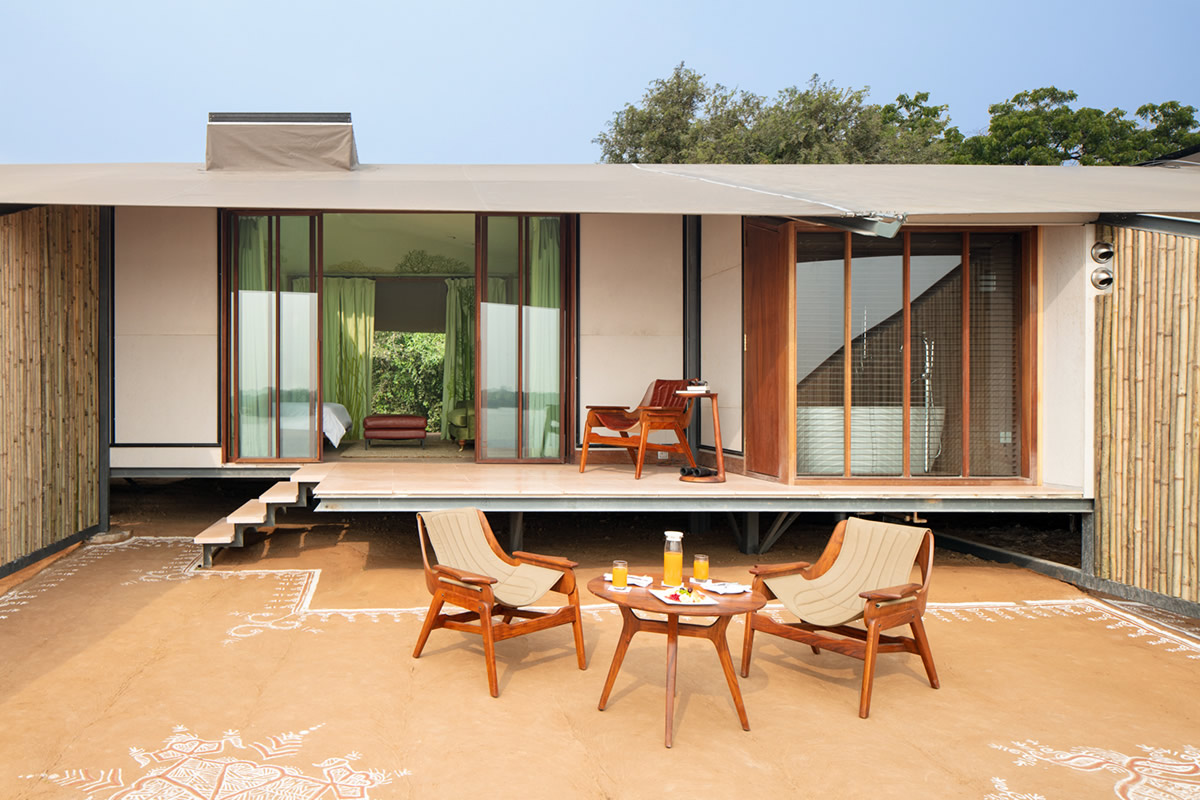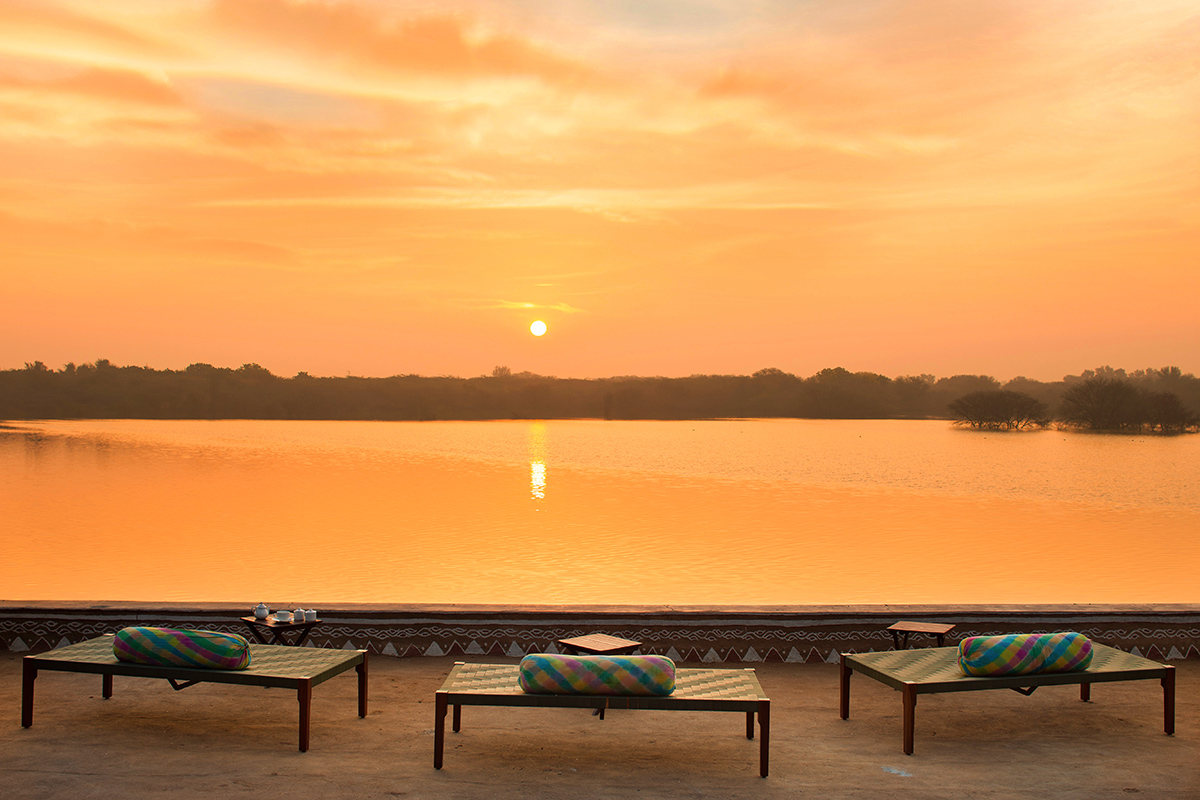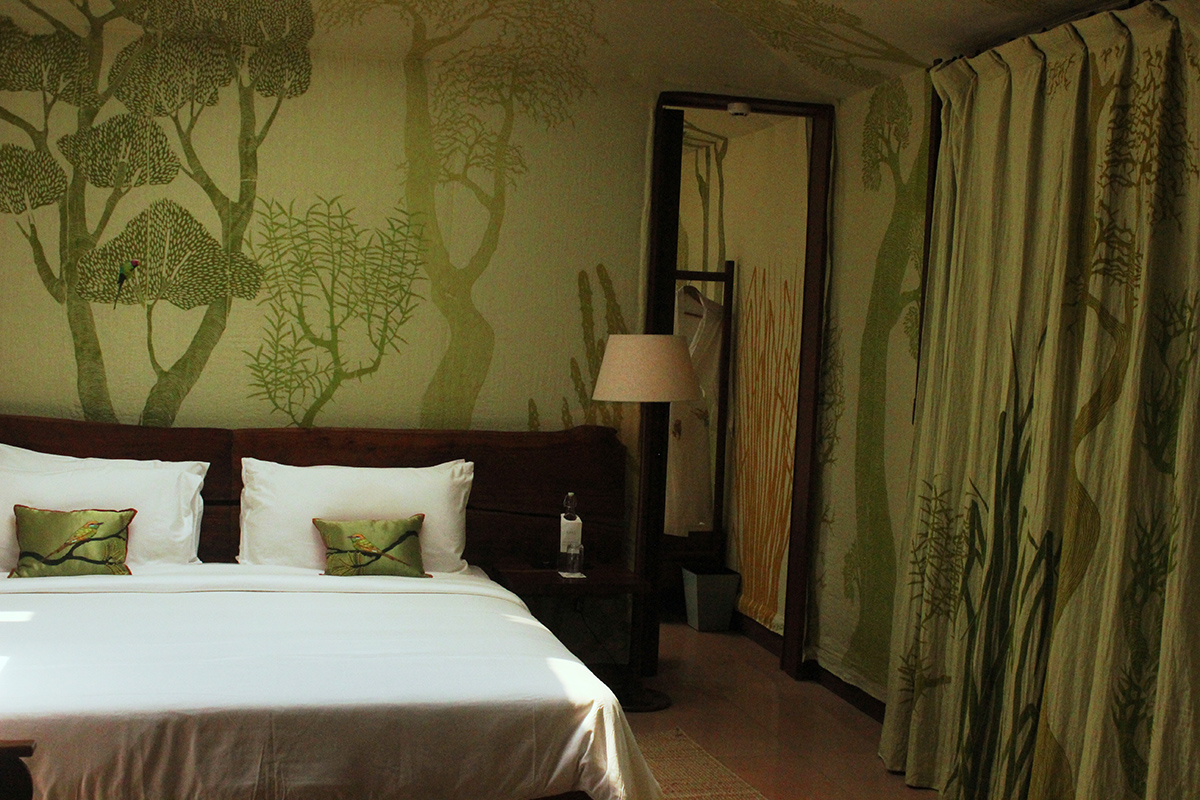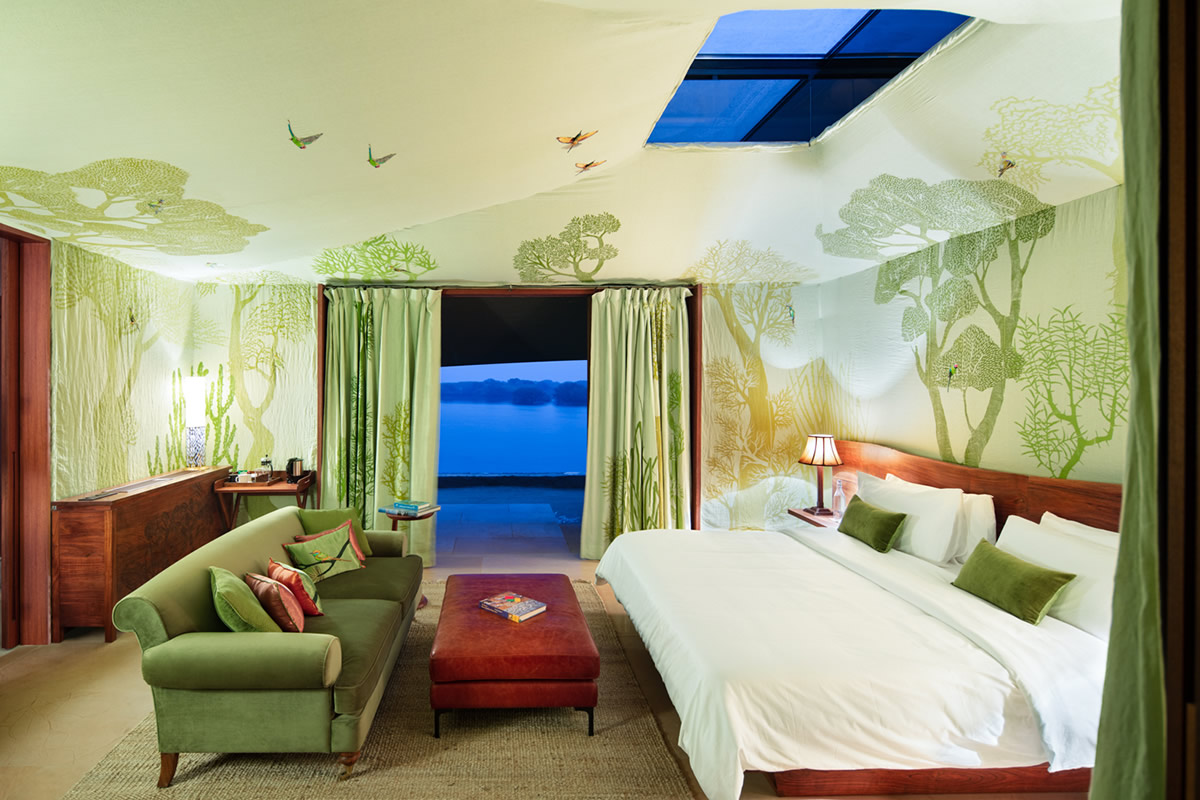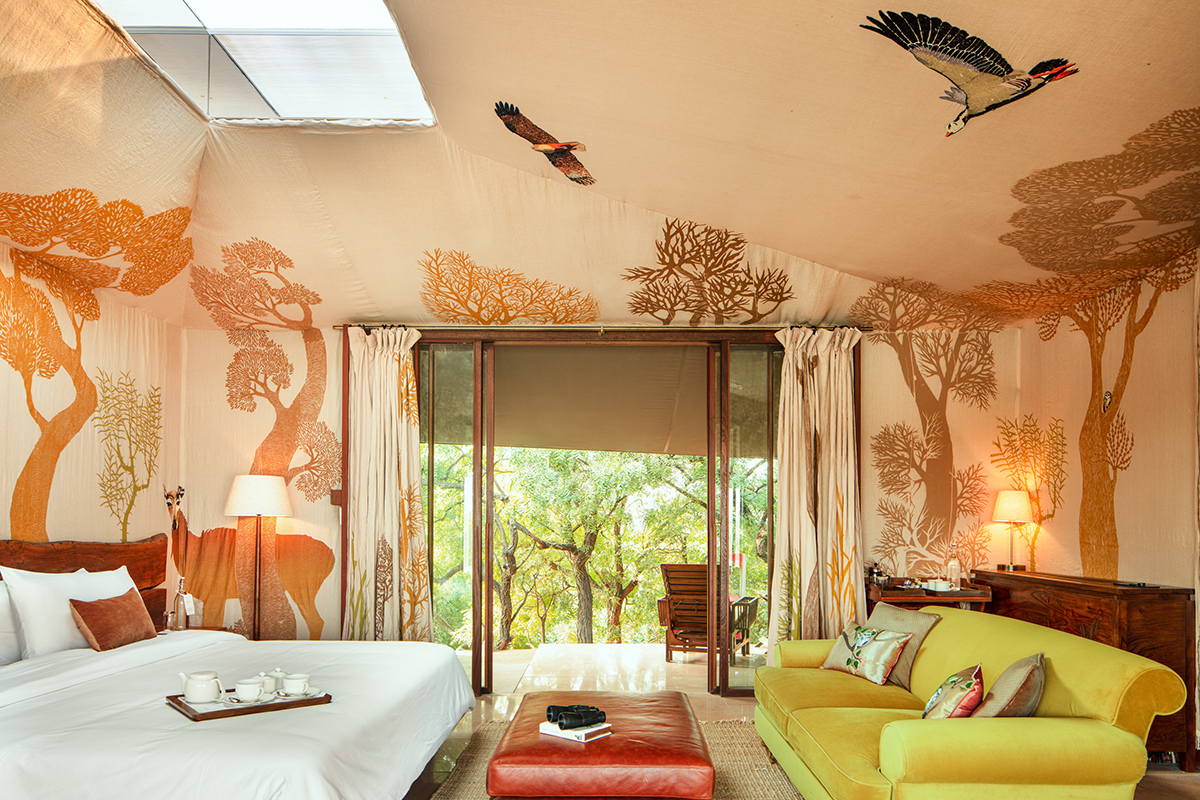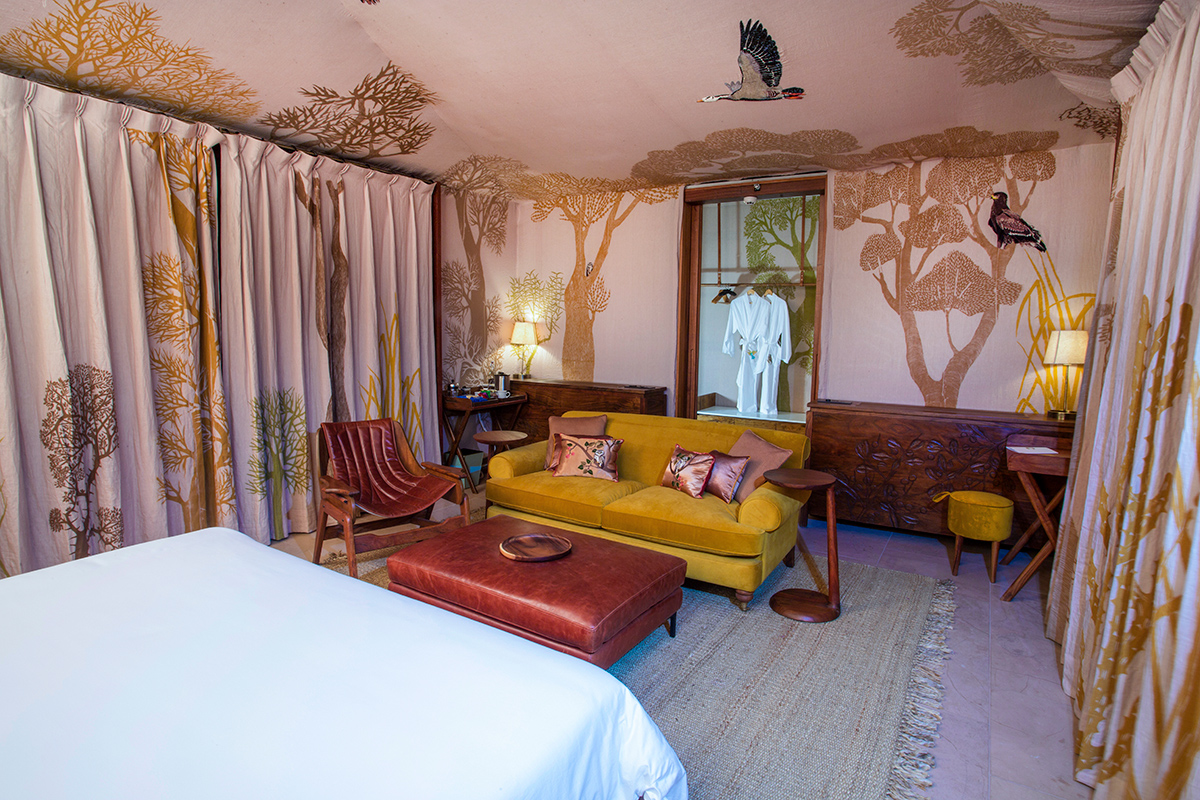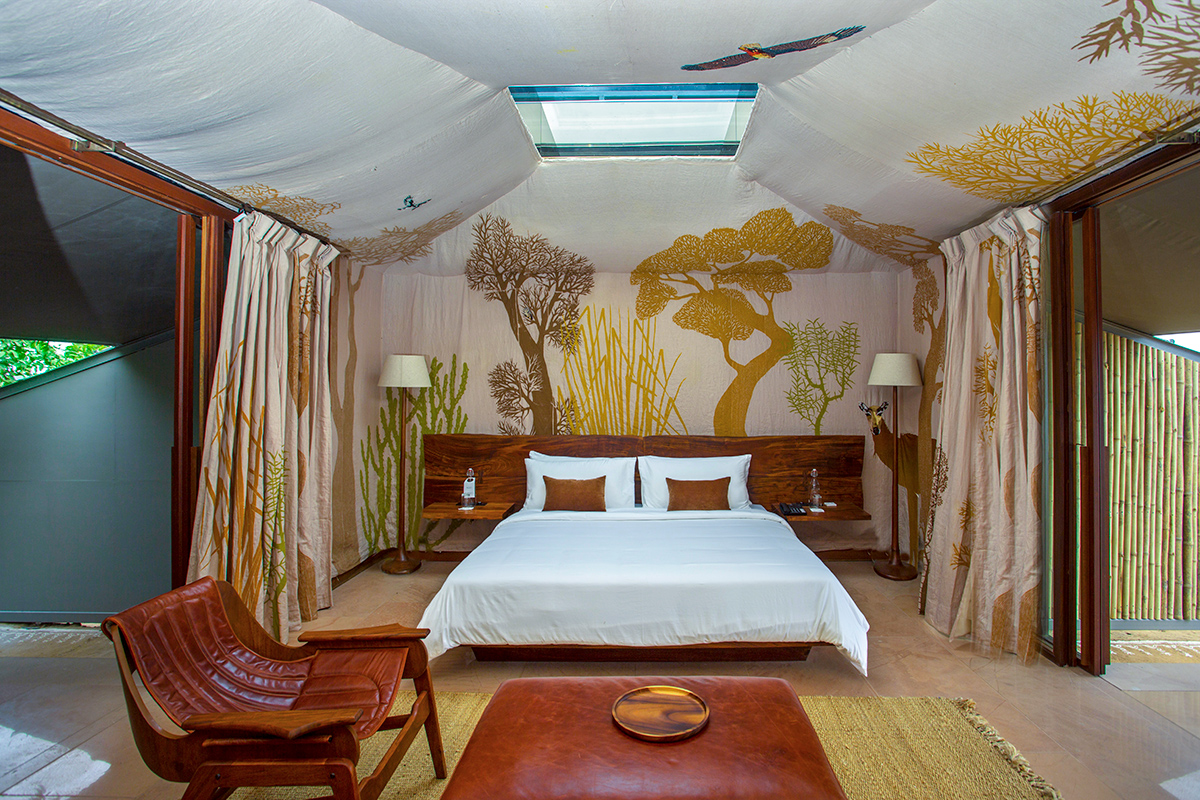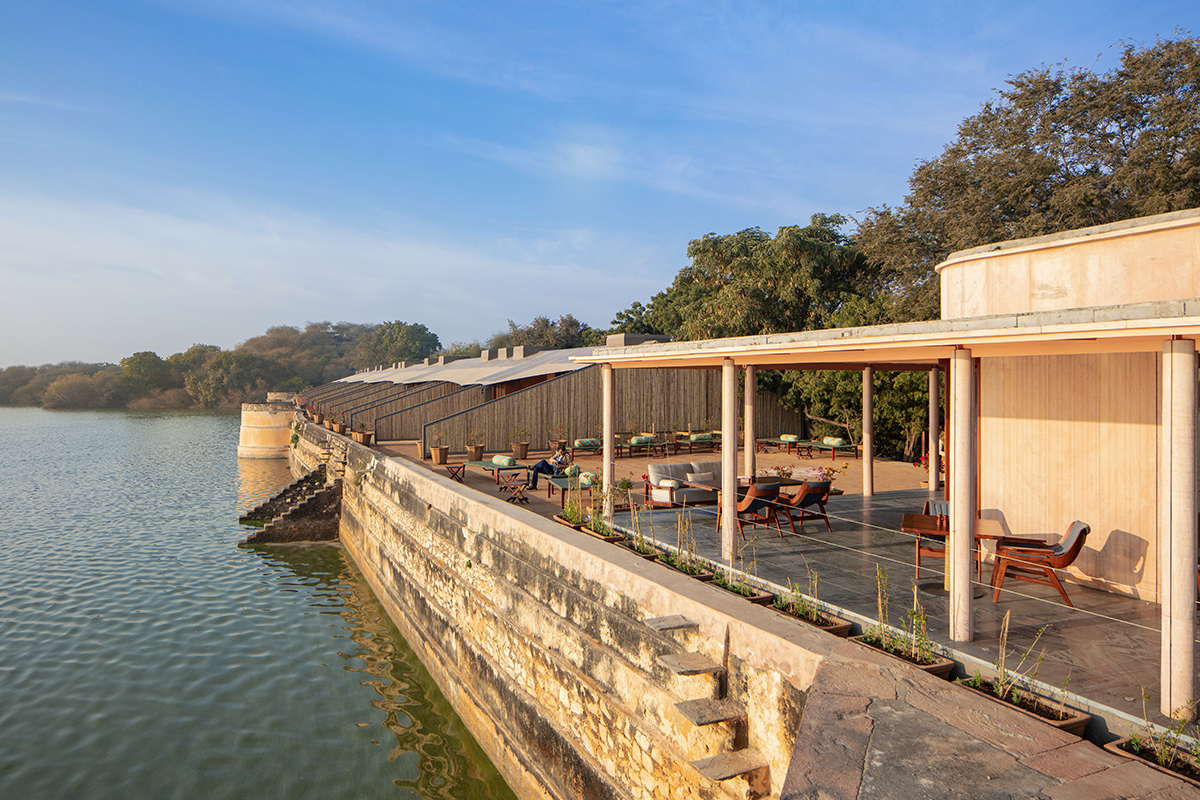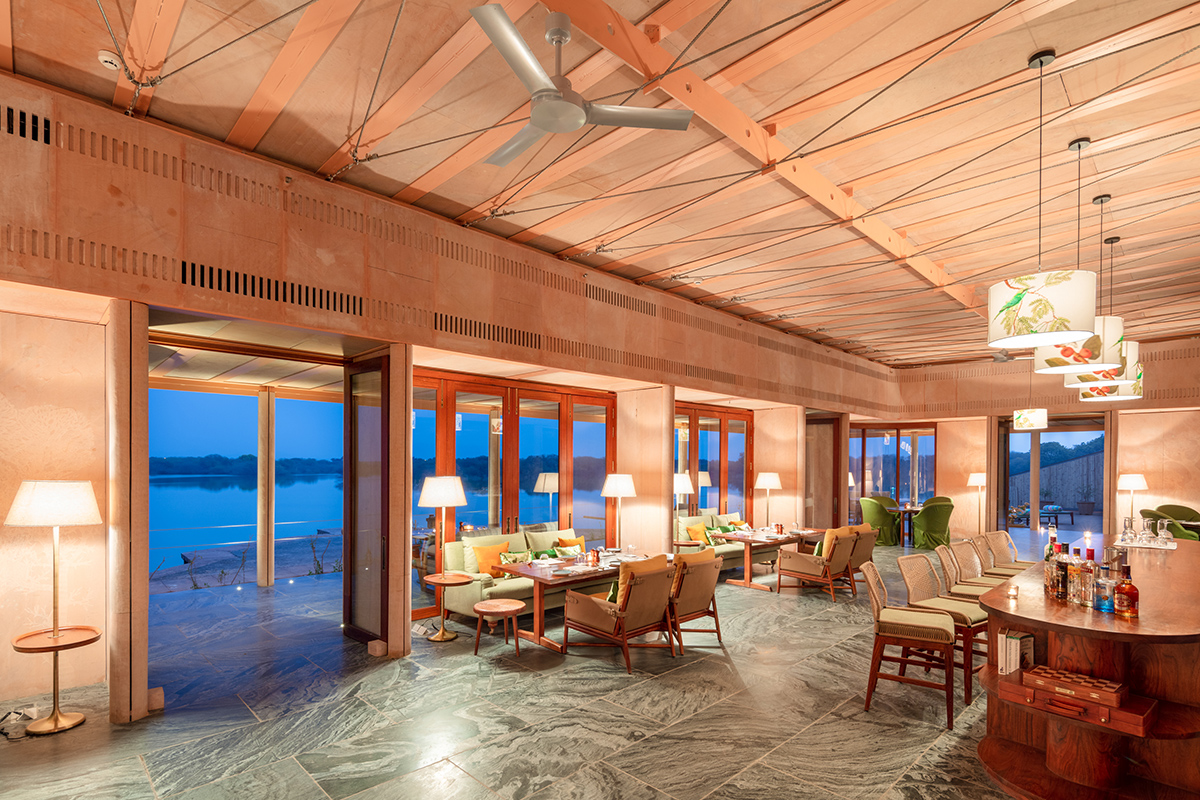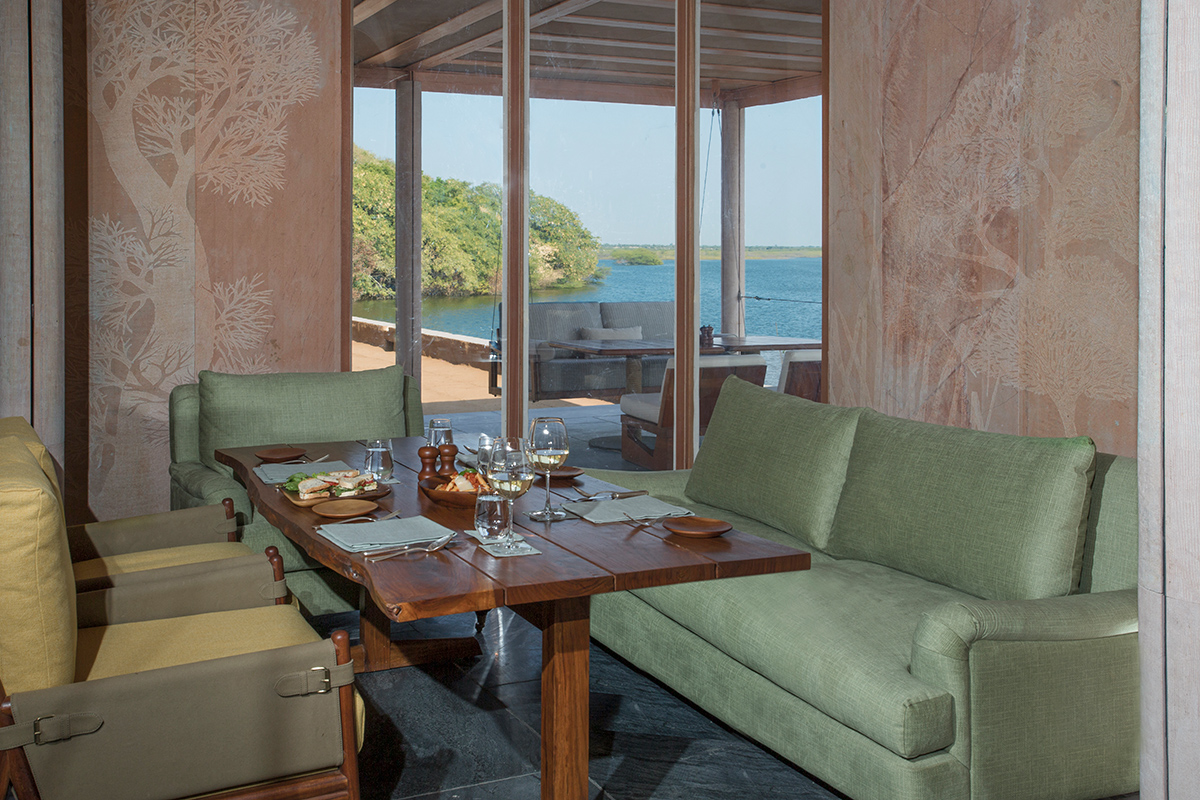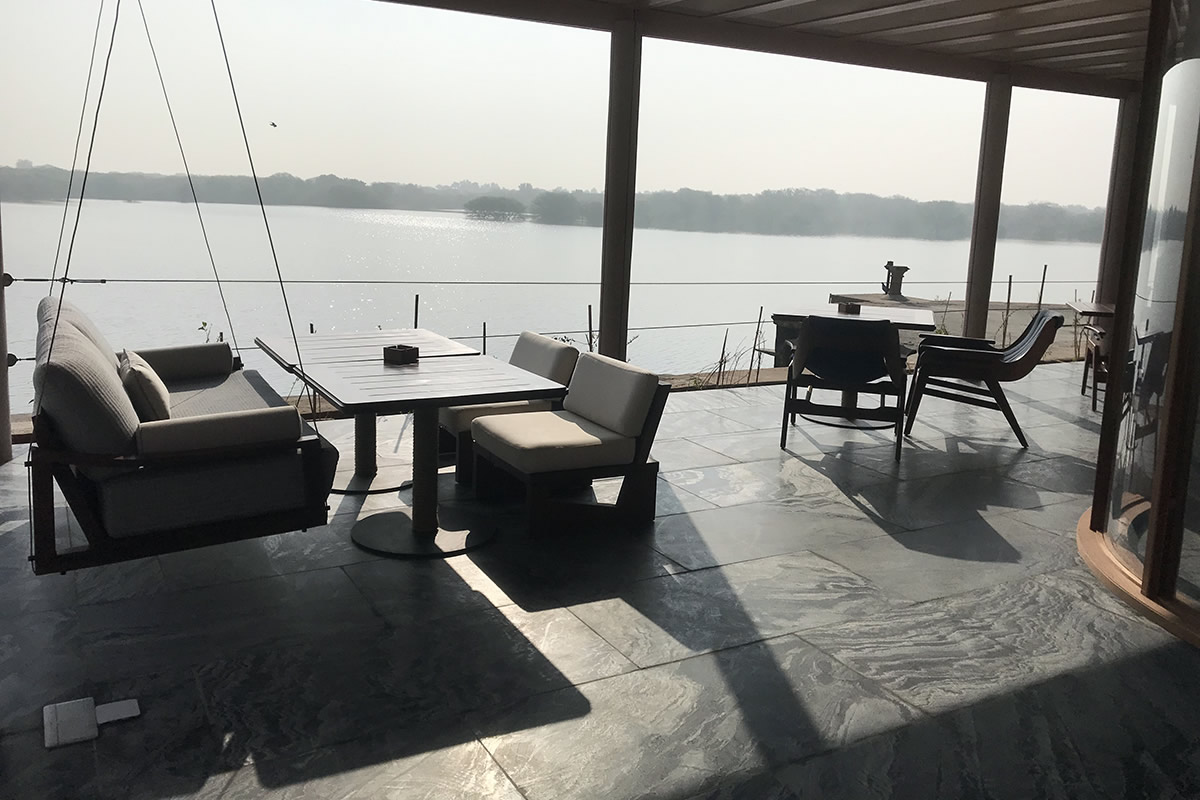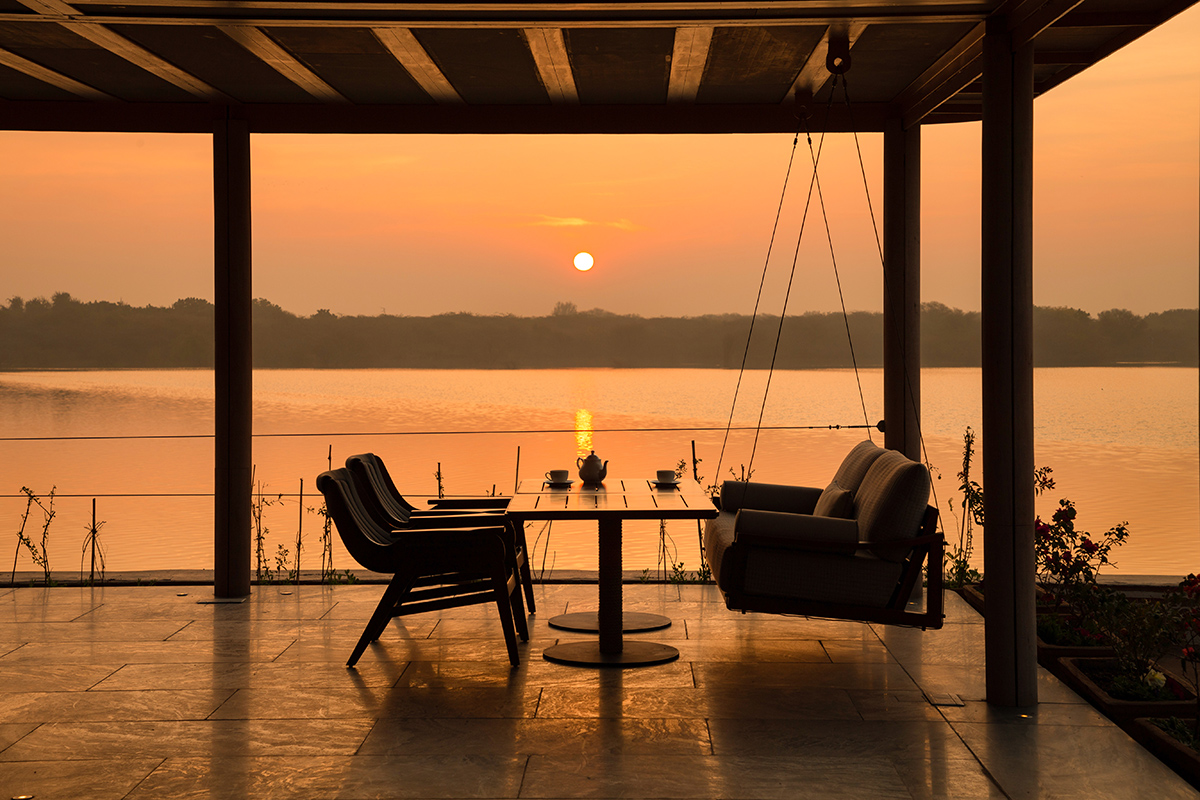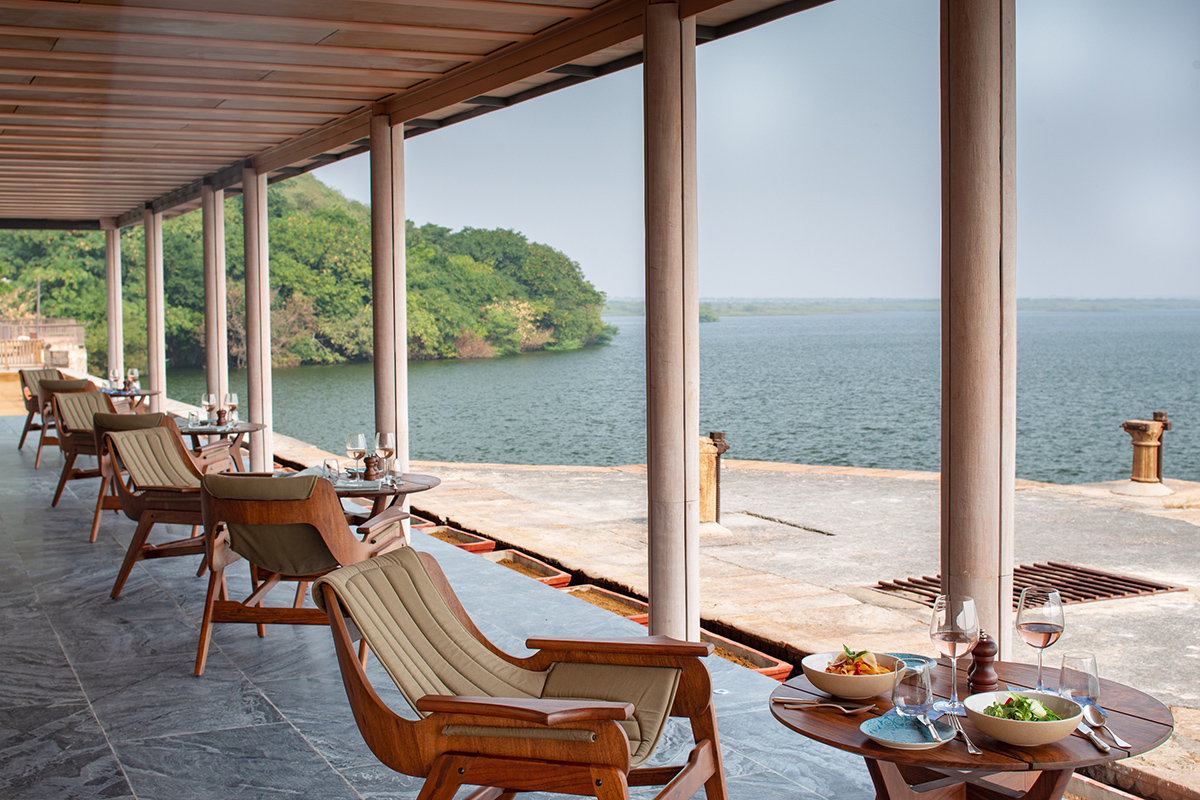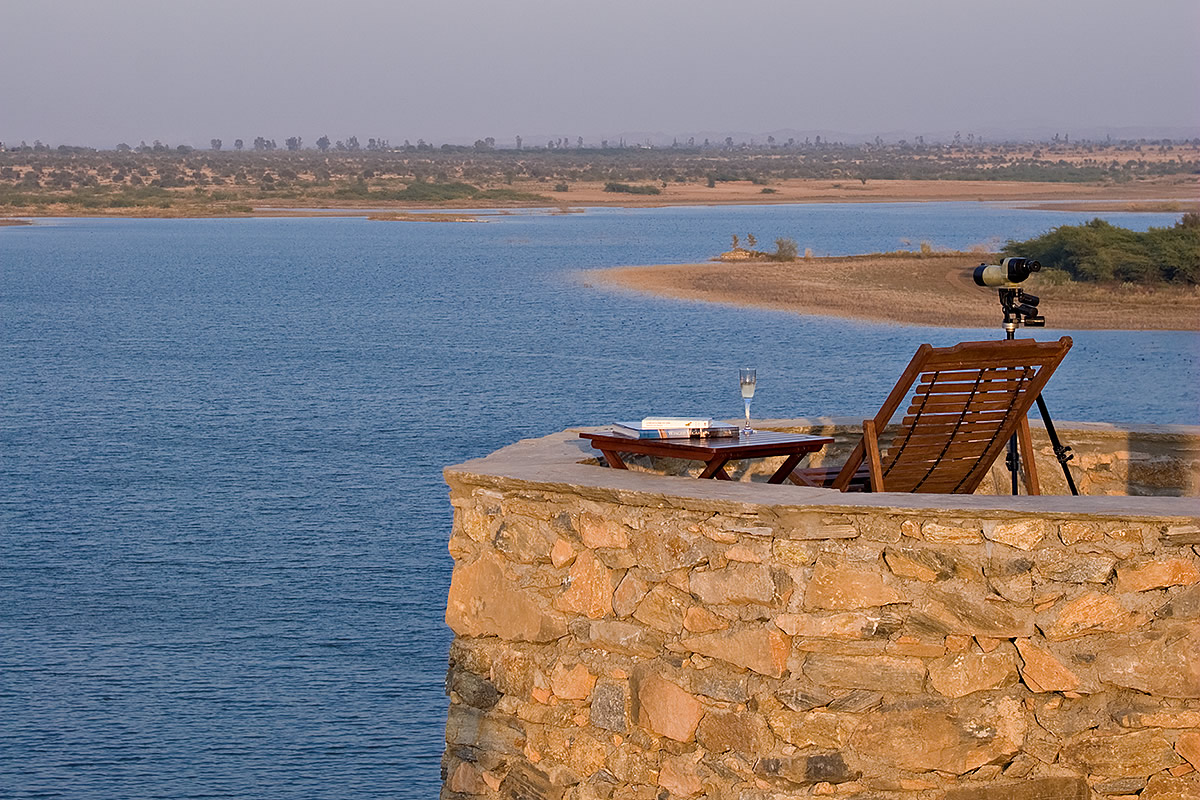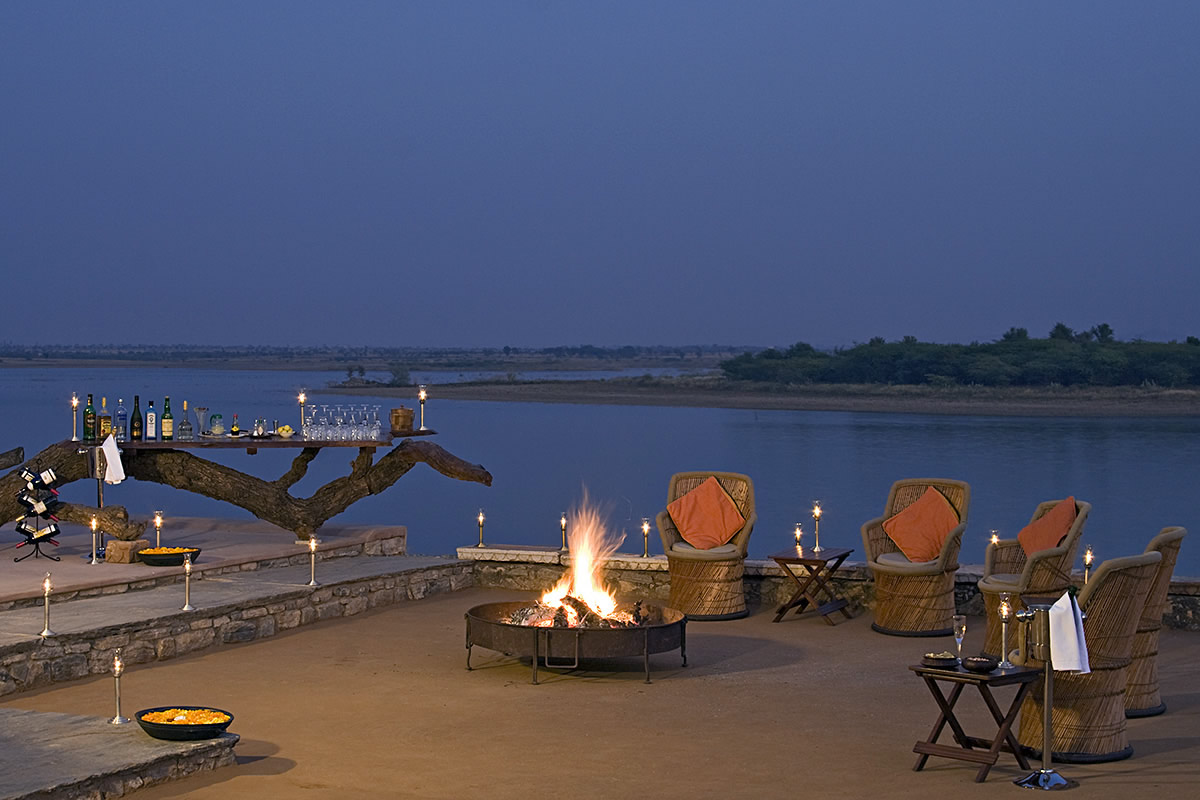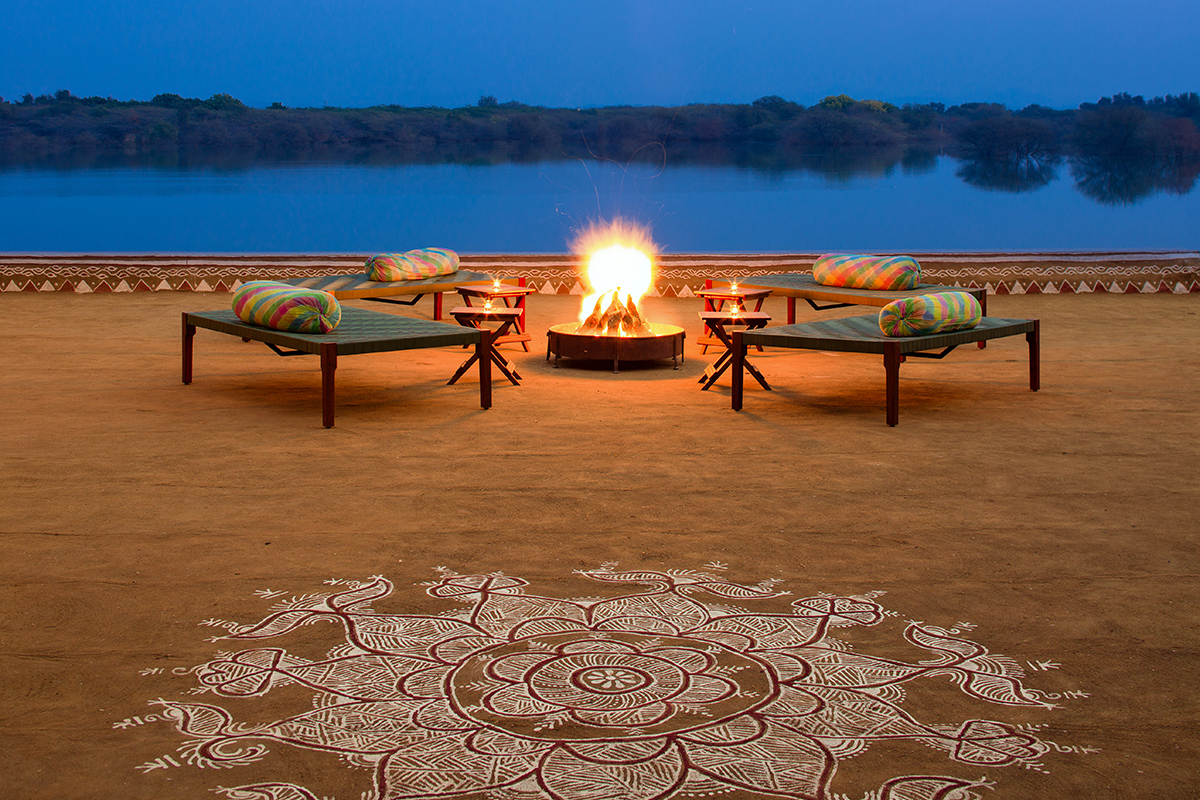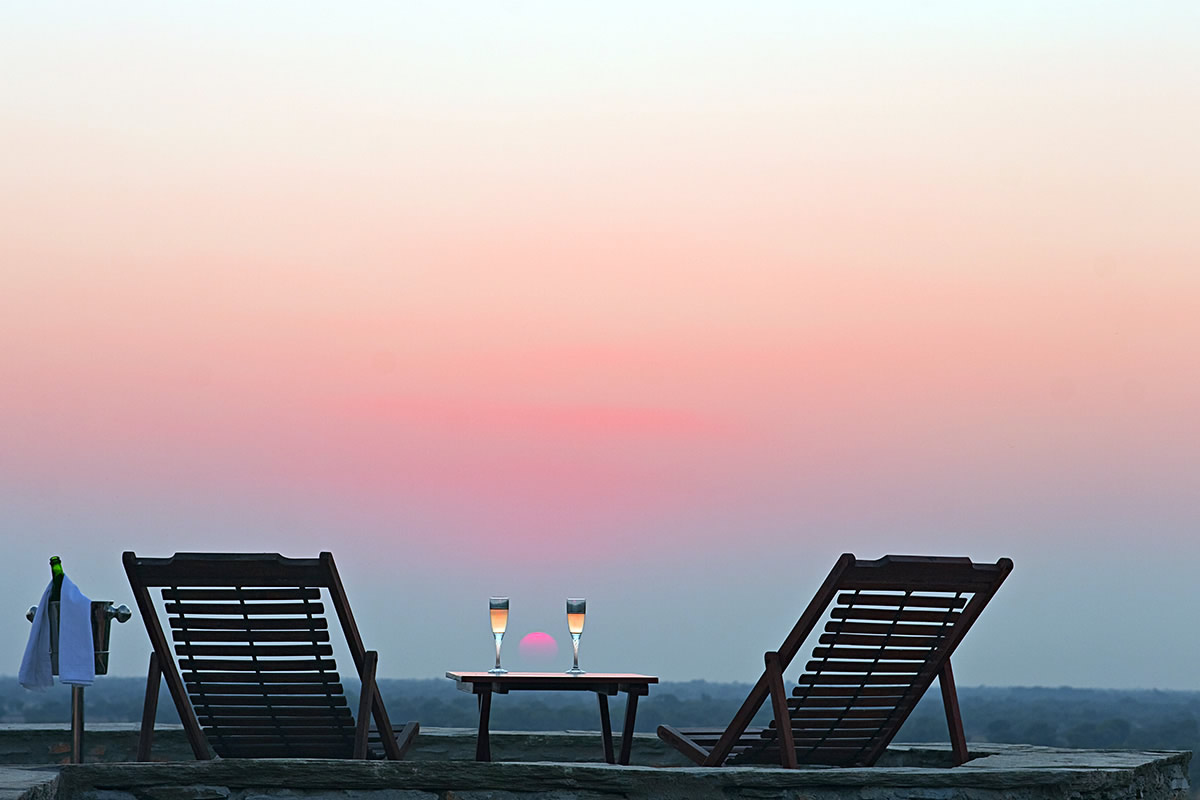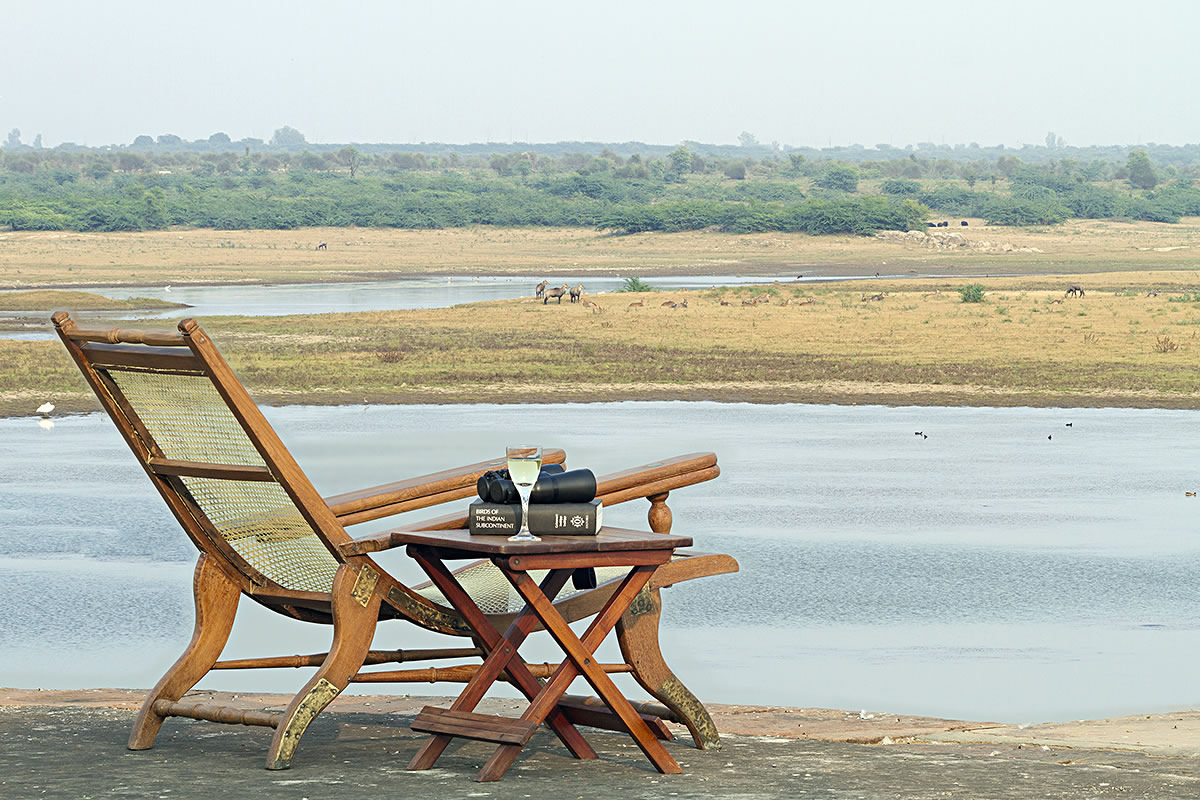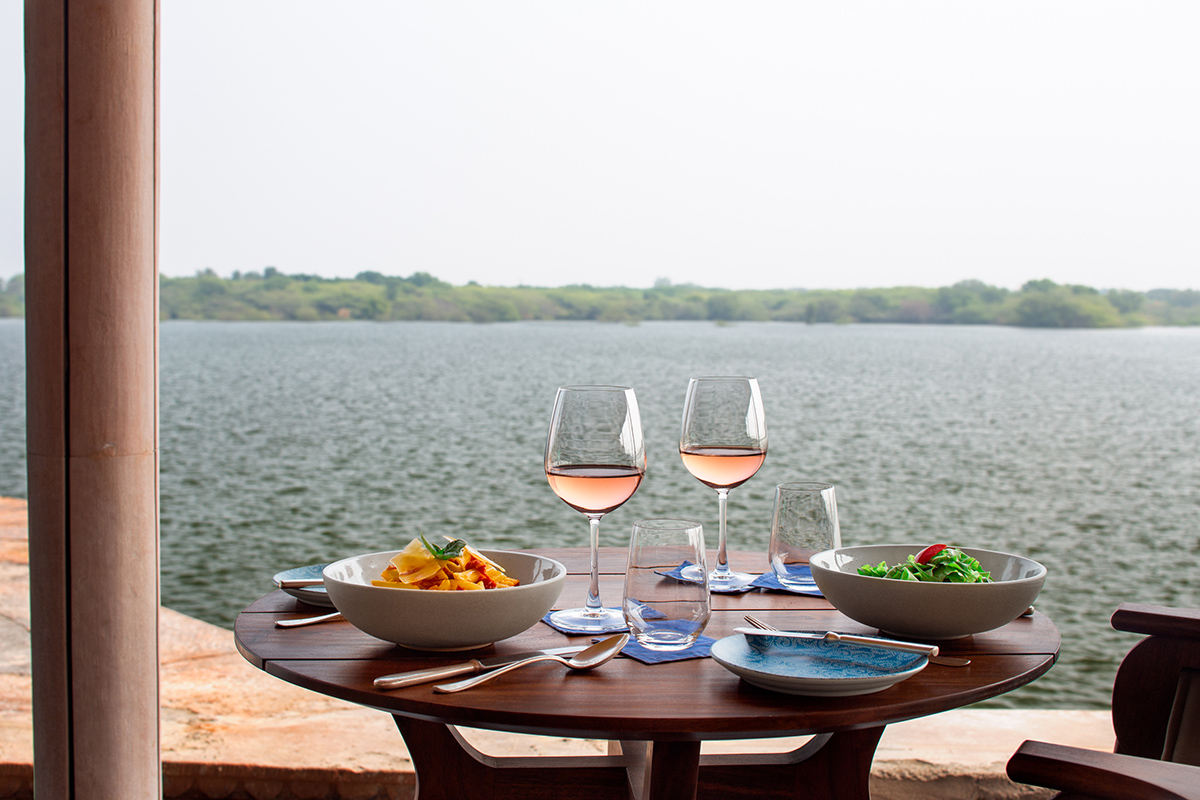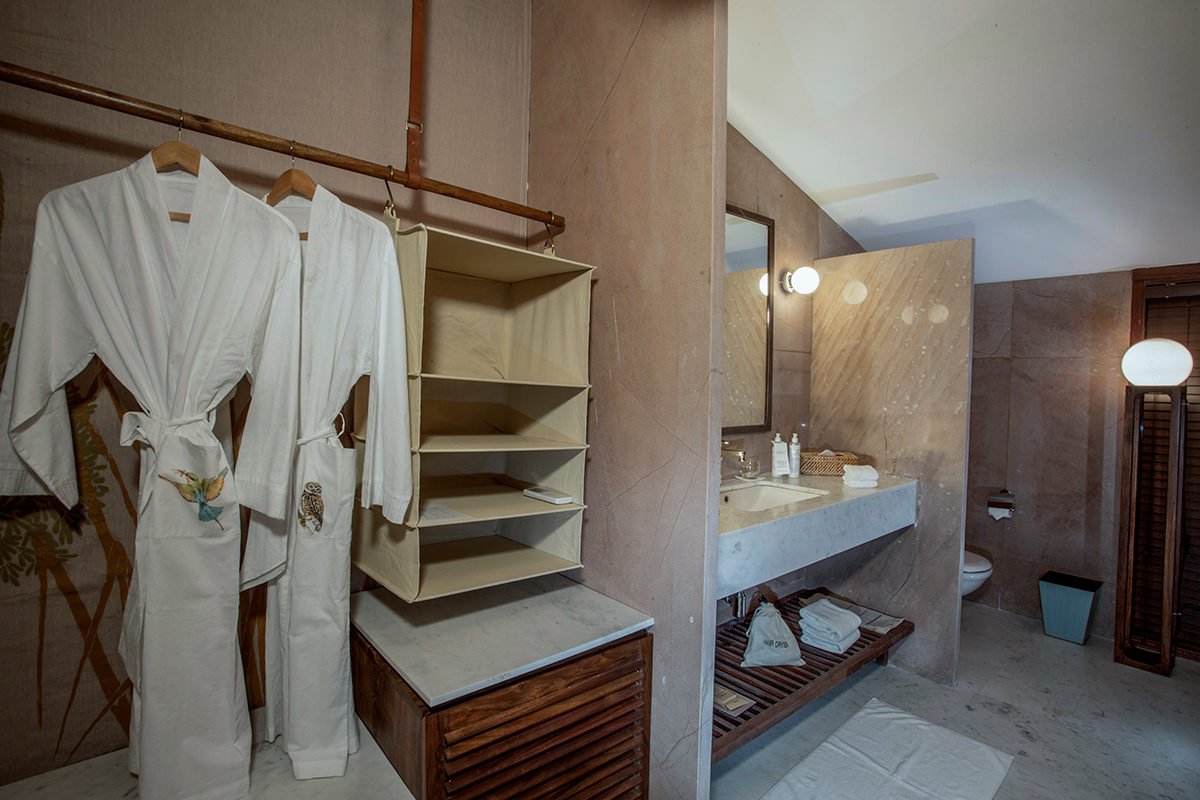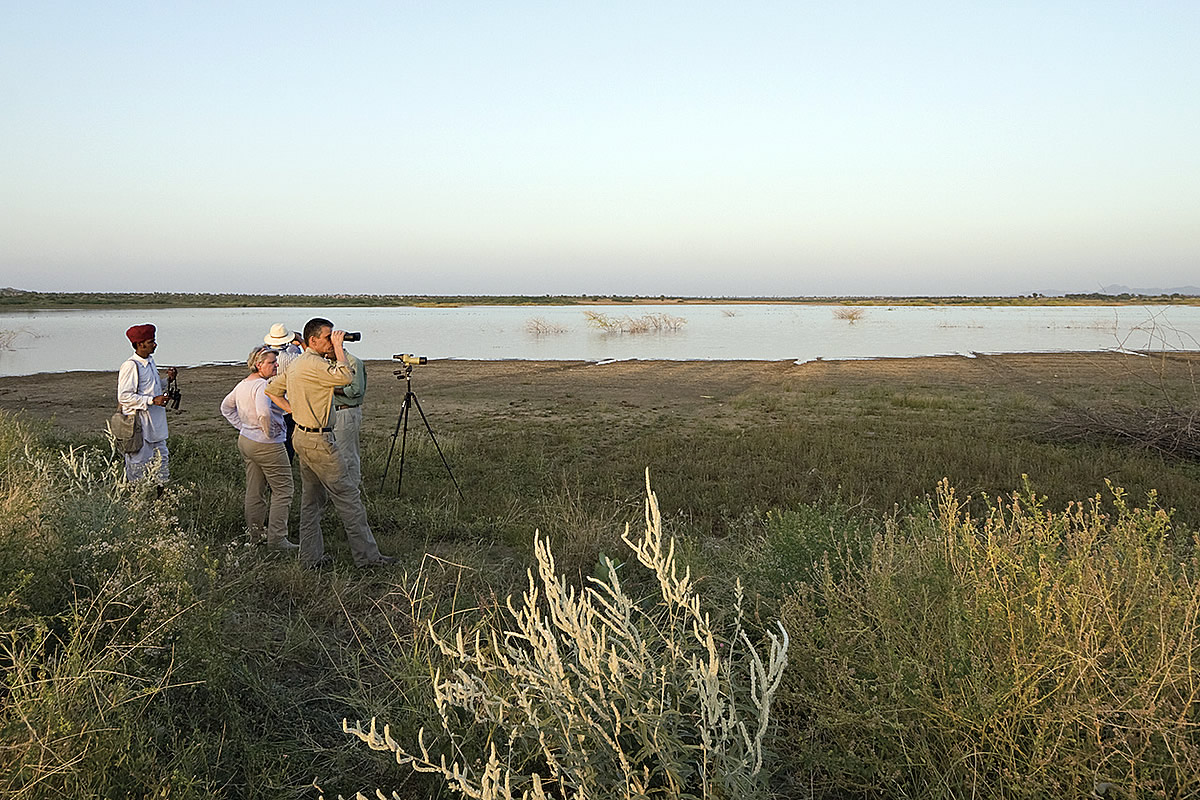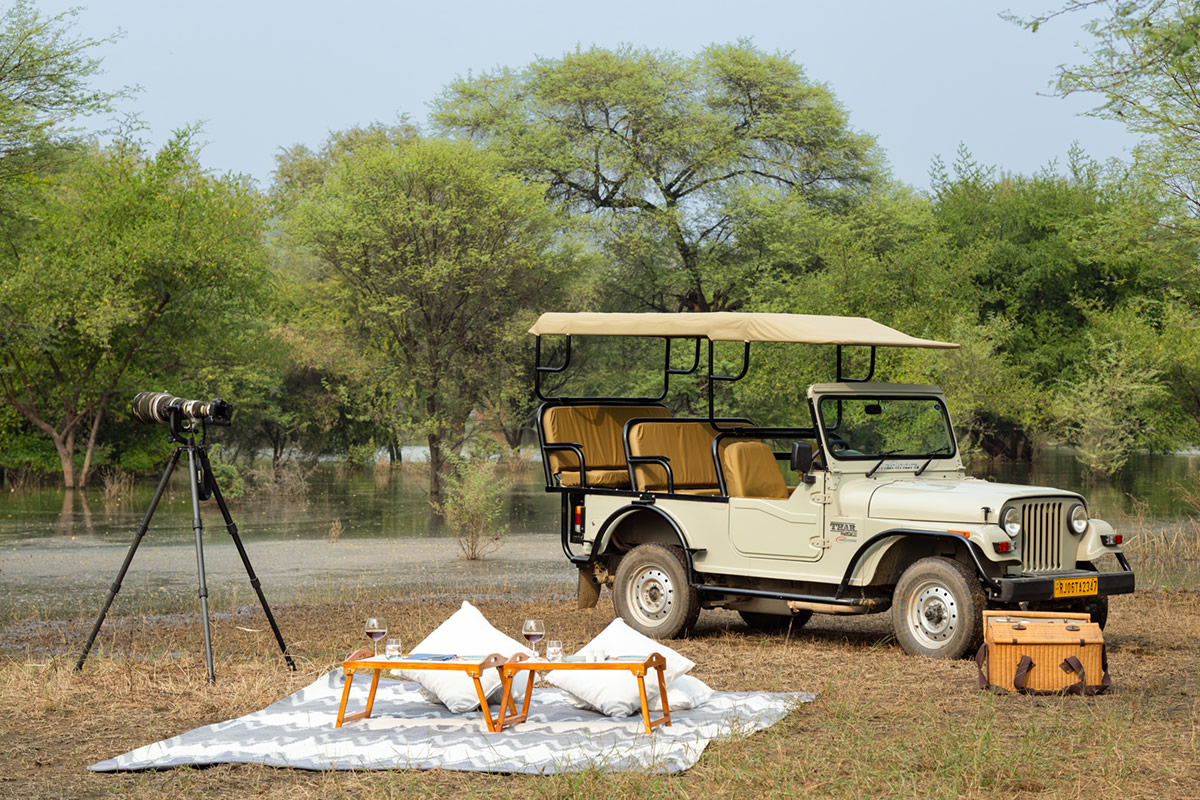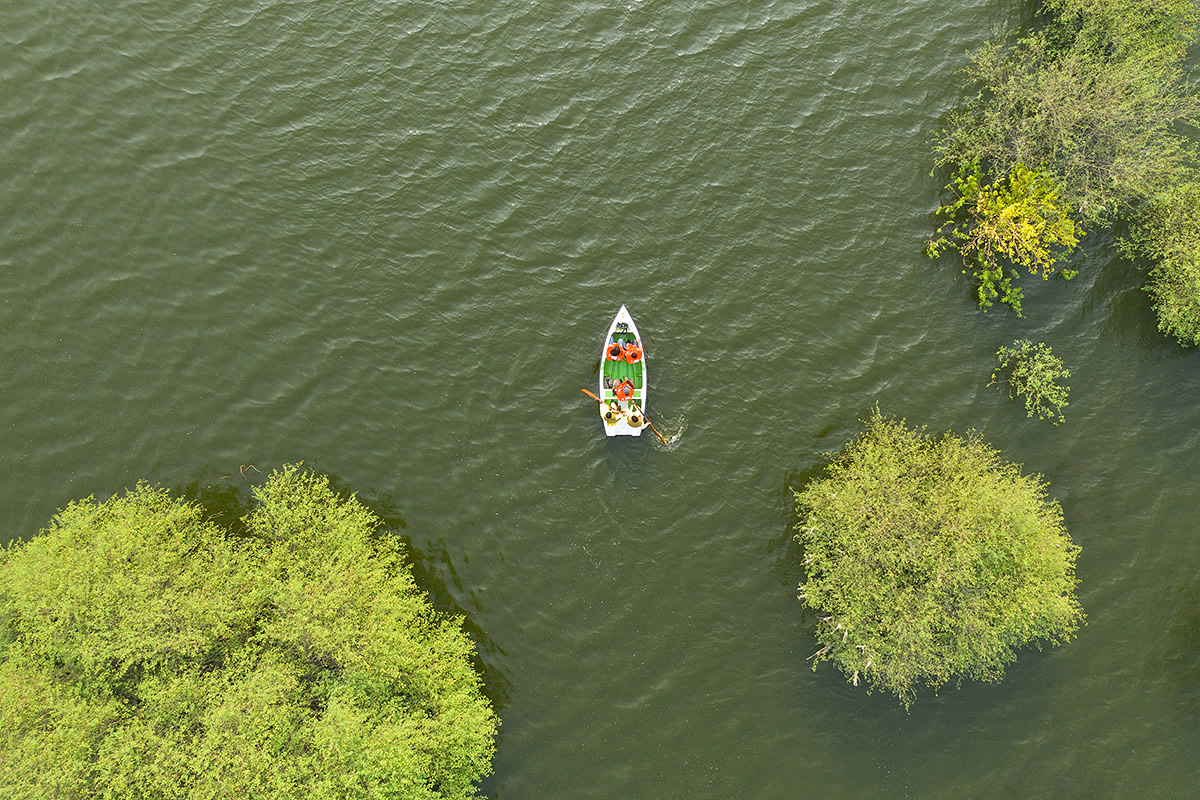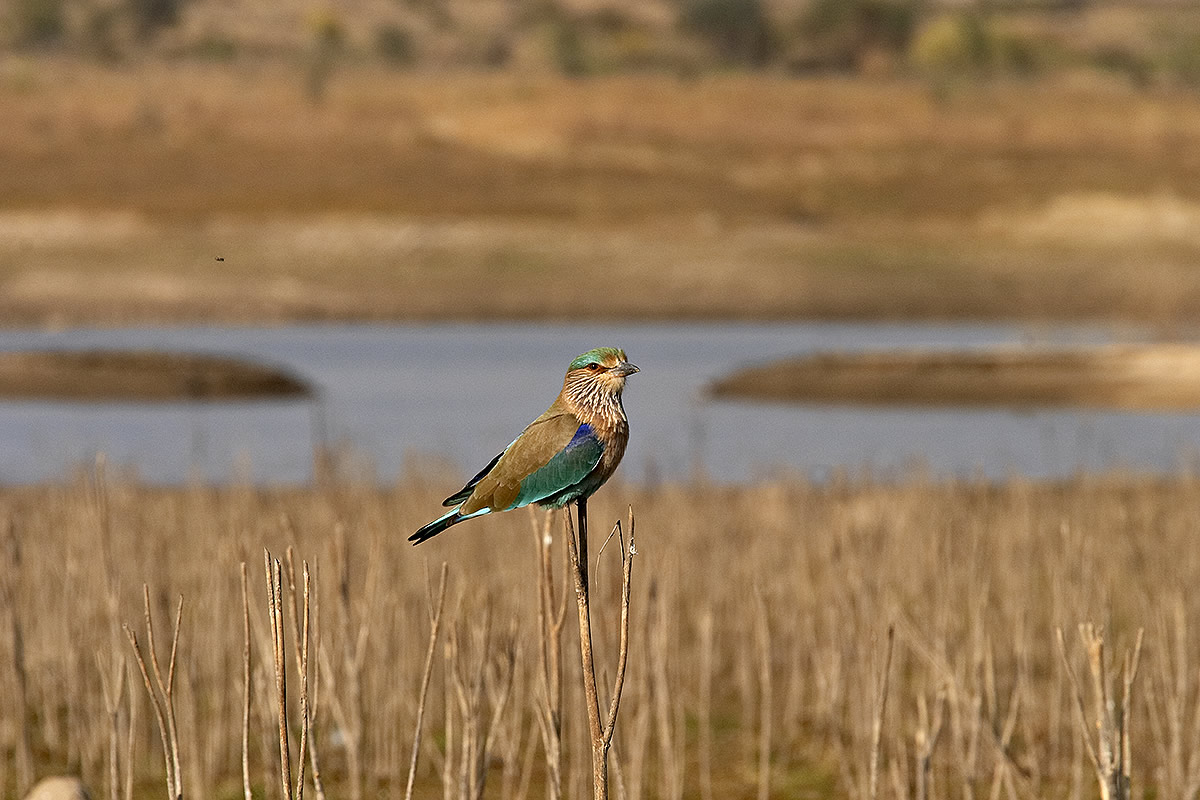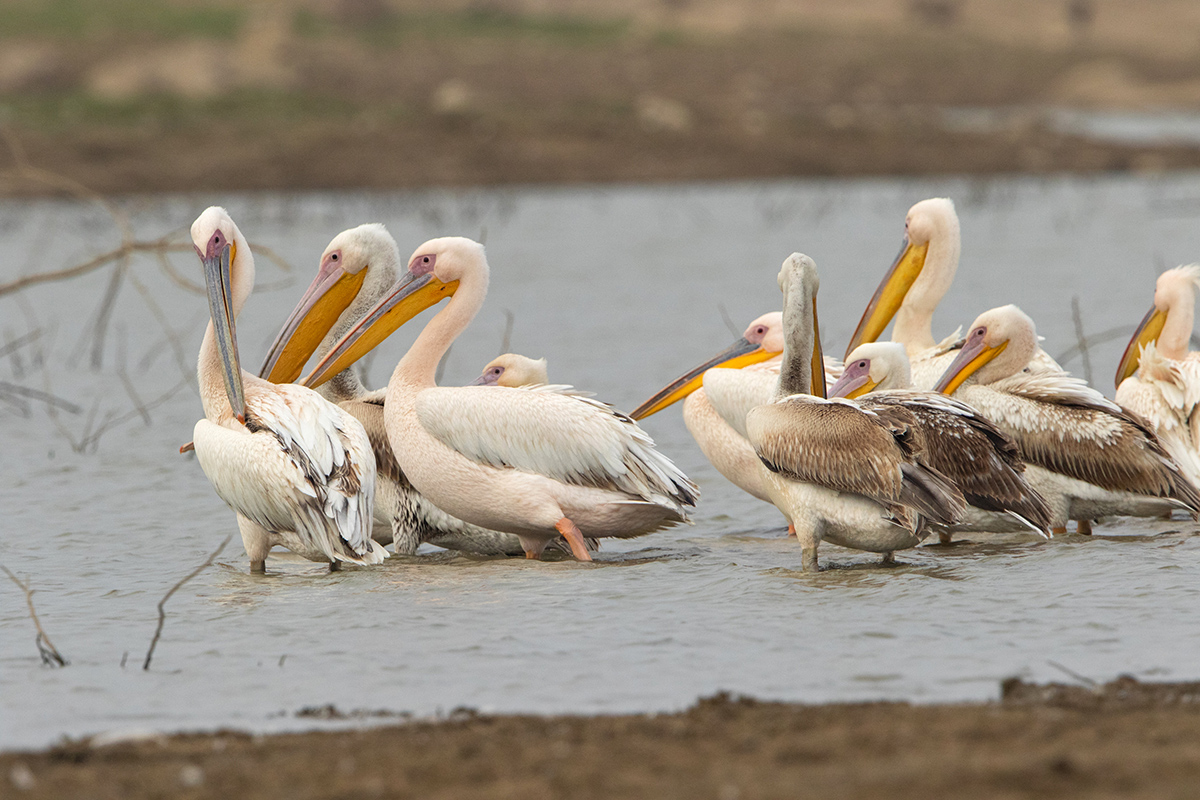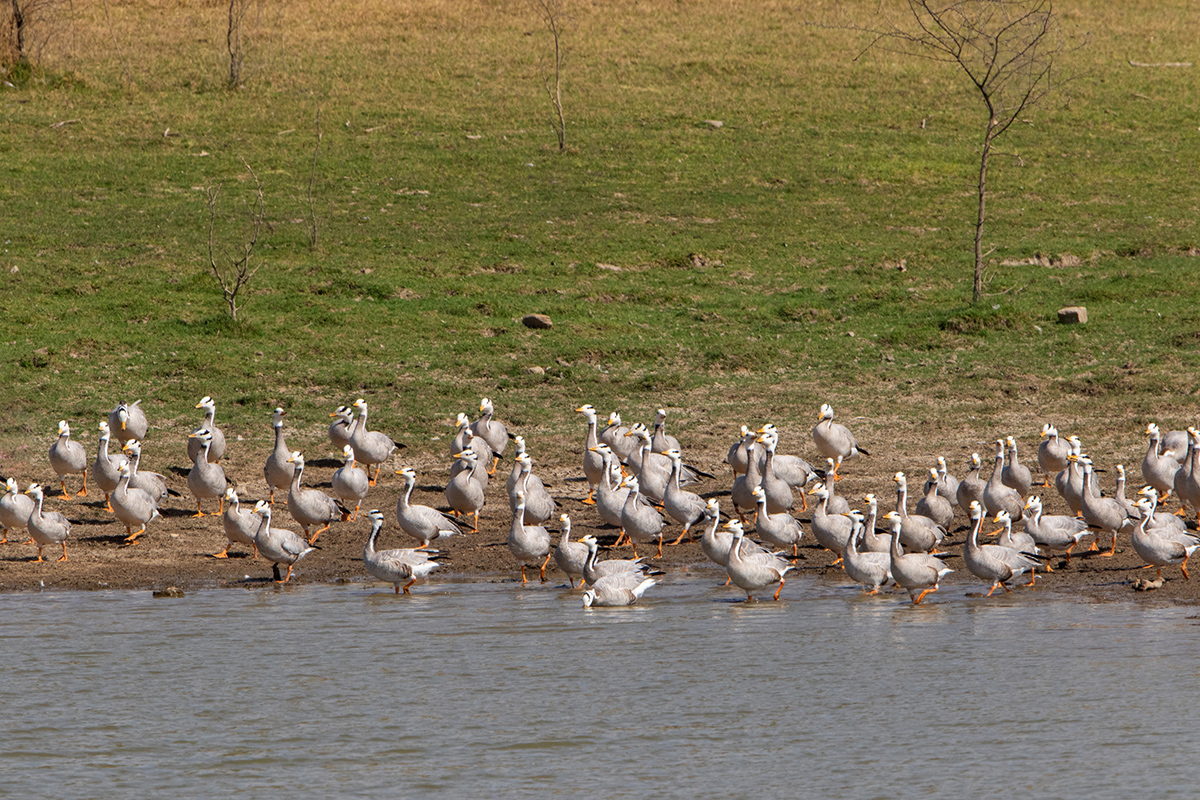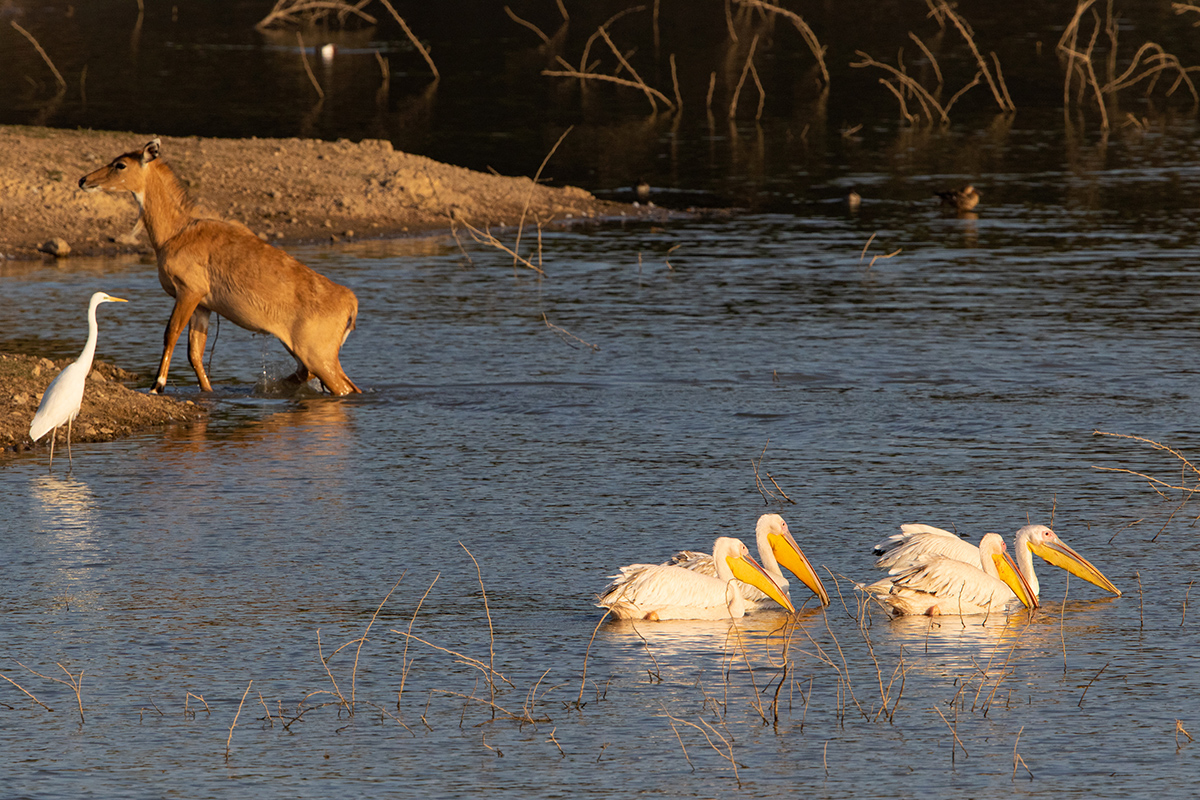
RAAS Chhatrasagar, Nimaj, Rajasthan (S)
A truly magical place which comprises delightful, luxurious, state of the art tents pitched on a dam (16) and a hillock (4), overlooking a lake teeming with birds (seasonal) and surrounded by grasslands replete with wildlife. It is a truly unique and breathtaking site in the heart of rural Rajasthan. The Nimaj family have recently teamed up with RAAS Hotels who have leased and are now running the camp. They have taken it to a marvellous new high in terms of additions and upgradations – there is now a glorious swimming pool overlooking the fields, a peaceful spa, an inviting baradari / dining pavilion and comfortable relaxing areas for absorbing the unforgettable views.
The new tents are larger, sound-proofed, generally more solid structures with a tented effect. They are modern, with soft muted colours, Jodhpur stone, teak furniture and sky lights; understated but gorgeously chic and refreshing. They have air-conditioning and heating so the camp will now remain open all year – one of only a couple of tented camps in India to be open year round!
A new walkway / approach to the tents allows the enlarged tents to have sitouts both front and back and also more privacy, whilst retaining their idyllic views. There’s nothing quite like sitting on your verandah here, with a good book, sipping a chilled glass of something, and being rewarded with glorious, uninterrupted views and virtually no sign of habitation.
The essence of the camp remains unchanged as the inspired owners of RAAS have a strong belief and passion for the place and are making these improvements in a hugely sensitive way. There is still a major focus on the bird life, farming communities, walks and rewilding with the activities being focused on exactly that. Accompanied by one of the knowledgeable naturalists, wander out to explore the farm, local temples and meet the villagers. Take a gentle dawn stroll around the lake, or an evening jeep drive through the grasslands, spying myriad bird species and herds of blue bull.
Finish with a ‘surprise’ sundowner, spend a while relaxing in the lovely tented sitting room, and enjoy animated chats around a blazing fire under a canopy of stars, before settling into a culinary feast of a dinner. The food here is quite exceptional and well lauded – they use local, organic home produce as much as possible and the age old family recipes receive some of the highest praise in Rajasthan.
The camp is in the best possible hands and RAAS Chhatrasagar is now in its new, sophisticated avatar – transformed into a hugely luxurious, chic tented camp. A stay here allows you to experience rural Rajasthan in a way that few other properties do. Undoubtedly one of the most peaceful and unusual hideaways in Rajasthan.
Eco / environmental / responsible tourism policy
Chhatrasagar was created to harvest rain water to re-charge the underground water system and then, by installing artesian wells, the same water could be drawn out for agriculture purpose which made the area fertile. Over the past two decades, due to the irregular usage of water from excessive agriculture and over growing crops which require a lot of water, the underground water system has failed, and people who have been settled here for over two centuries have had to look for different source of earnings.
100% of the staff at Chhatrasagar is from the local community. The owners are the fourth generation of Thakur Chhatra Singh who created this water harvesting system and the staff here is the fourth generation of the people who helped create this system and named it Chhatrasagar.
Chhatrasagar started to educate the farmers to return to growing crops which required less or no irrigation, and which could be grown by properly harvesting the monsoon water. They have also educated the farmers to grow less 'thirsty' vegetables and even if the government prices are low for such vegetables, Chhatrasagar commit to buying them at a high price. This, in turn, contributes directly back to their water conservation programme. Being nature lovers themselves, the family at Chhatrasagar has returned all their agriculture land back to nature - it has been re-wilded. The land now has 15 different types of grass and all indigenous trees, which have once again gripped the soil which now provides most of the ingredients for the food served at Chhatrasagar.
Due to the water crises and the concept of water harvesting, they do not have bathtubs at Chhatrasagar. Equally, all the waste water is filtered and is used for irrigation.
At Chhatrasagar most of the food is prepared from vegetables grown locally and with minimum use of water. Most of the cooking is done on methane produced from cow dung, in order to conserve energy. They have energy saving bulbs in the tents. The outdoors and the dining area are lit by candles, hence minimum power is consumed. For camp fires they use Julie Flora which is planted on the fences of the farms. In this way no trees need to be cut for fuel. In the warmer months, the sitting and dining areas are cooled by using traditional cooling methods which do not require electric power.
Chhatrasagar has also adopted a small settlement which was directly dependent on rain water harvested at Chhatrasagar and the hotel makes contributions to their school. Simply by staying at Chhatrasagar, guests have already done a great deal towards the age old water harvesting concept!
Party Moments
Also small and perfect for taking in its entirety and with a gorgeous lakeside setting. Plenty of spacious areas, both covered and al fresco, to celebrate in style and ideal for those looking for an intimate, friendly place with plenty of rural activities to occupy guests during the day. Limited but colourful entertainment possible.
reservations
For reservations please contact your tour operator, your local travel agent,
or please call +91-9257028200
or email or contact the hotel.
must do
Walk around the lake at dawn or dusk and listen to the sounds of the birds.
Access
By air to Jodhpur from Delhi, Jaipur, Udaipur or Bombay, followed by a 2 hour road journey.
By car from Khimsar, Osian, Nimaj, Roopangarh, Ajmer, Deogarh, Narlai, Rohet, Luni and Bhenswara; or by a longer road journey from Jaisalmer or Bikaner.
downloads
Find us on
Reach us by Road

